As 2022 winds down, like most cinephiles, we’re looking to get our eyes on titles that may have slipped under the radar or simply gone unseen, so—as we do each year—we’re sharing a rundown of the best titles available to watch at home.
Curated from the Best Films of 2022 So Far list we published for the first half of the year, it also includes films we’ve enjoyed the past few months and some we’ve recently caught up with. While our year-end coverage is still to come, including our staff’s top 50 films of 2022, this streaming guide will hopefully be a helpful tool for readers to have a chance to find notable, perhaps underseen, titles of late.
Note that we’re going by U.S. releases and that streaming services are limited solely to the territory as well. If you want to stay up-to-date with new titles being made available, check out our weekly column. In the meantime, see our rundown below, which will be updated as new titles hit streaming services, so make sure to bookmark.
Aftersun (Charlotte Wells)
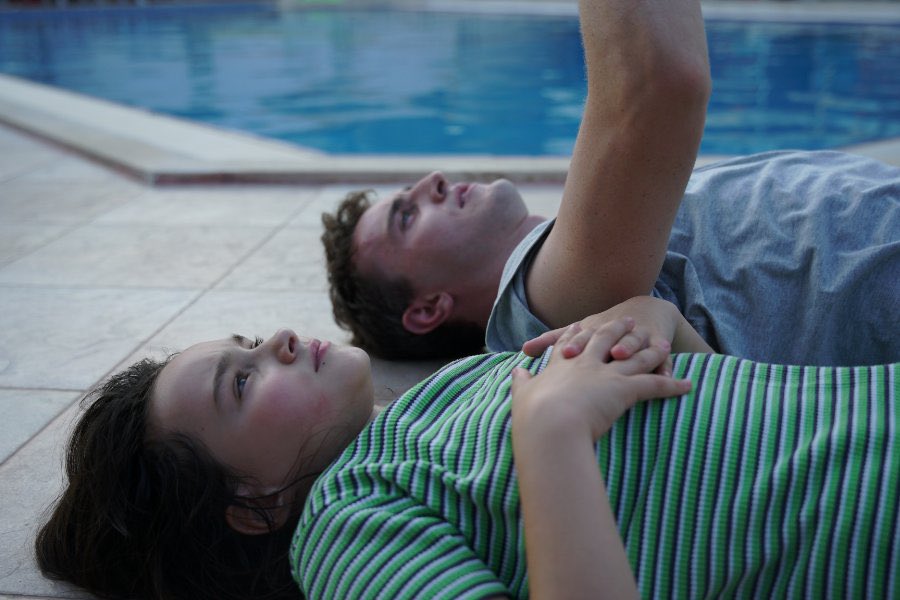
One of the year’s most resonant films, Aftersun looks at the scratchy dynamics between a father and daughter while on vacation. It’s about memory, the finite nature of the relationships in our lives, and the difficulties of a parent’s diminishing mental health. Charlotte Wells knows where to put the camera in her debut—undeterred from taking risks, from placing her characters outside of the frame, from looking at shadows instead of the people themselves. Aftersun is a rare, tremendous first film, full of heart and focused melancholy; it breaks you down and fills you up simultaneously. The consistent inclusion of camcorder footage, and the fact that it enhances the story rather than becoming a distraction, further proclaims Wells as a director with immense talent and overflowing care. – Michael F.
Where to Stream: VOD
After Yang (kogonada)
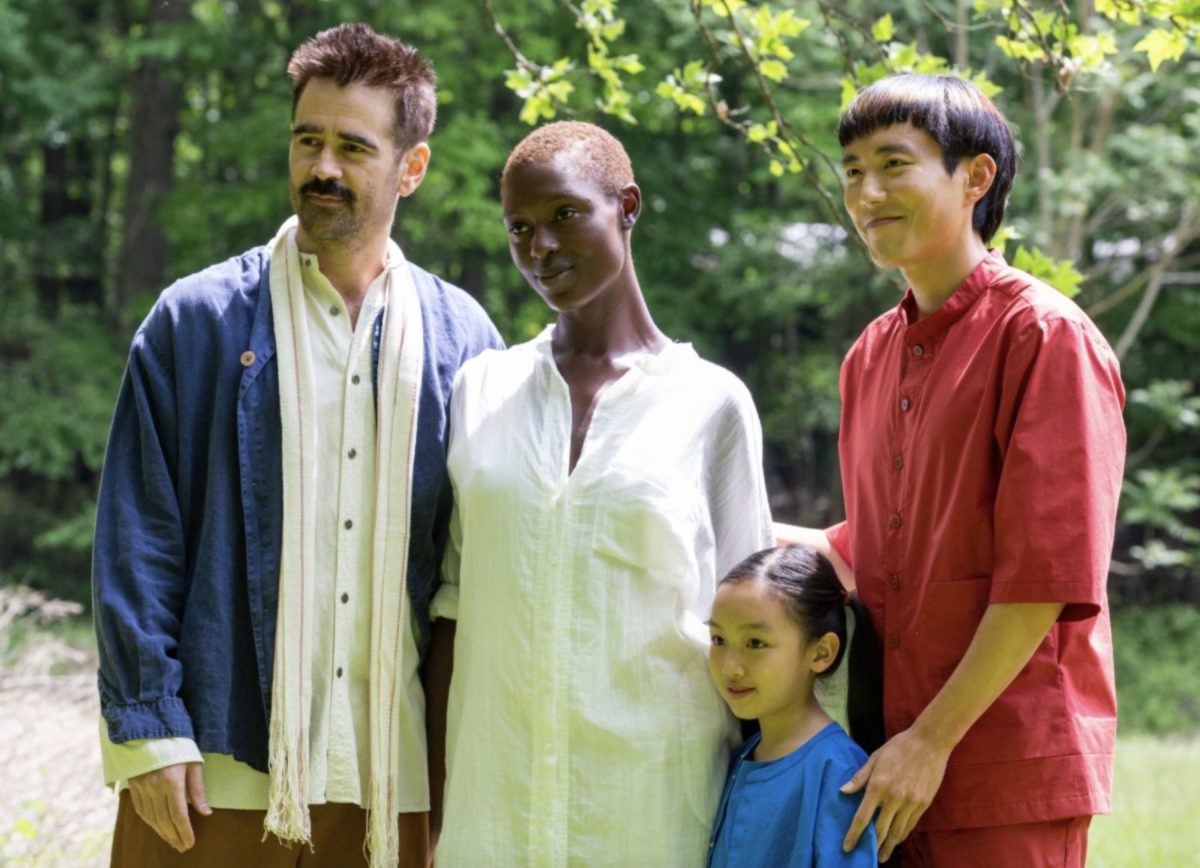
Many artists strive to find meaning in their work, but for kogonada it’s the pursuit that provides the meaning. In a way, if he were to “find it” that wouldn’t be nearly as special as the everlasting exploration and attempt to achieve that enlightenment. His sophomore feature, After Yang, asks some of the biggest questions about life in the gentlest of ways. In a world where robotic children are purchased as live-in babysitters, the malfunctioning of Yang (Justin H. Min) leads his father figure Jake (Colin Farrell) on a quest for a solution. Obsessing over this need to make his family feel whole again, alongside his wife Kyra (Jodie Turner-Smith) and their daughter Mika (Malea Emma Tjandrawidjaja), Jake is able to glimpse snippets of Yang’s recorded memories, where he finds that his android son had a whole life he never knew a thing about. – Mitchell B. (full interview)
The African Desperate (Martine Syms)
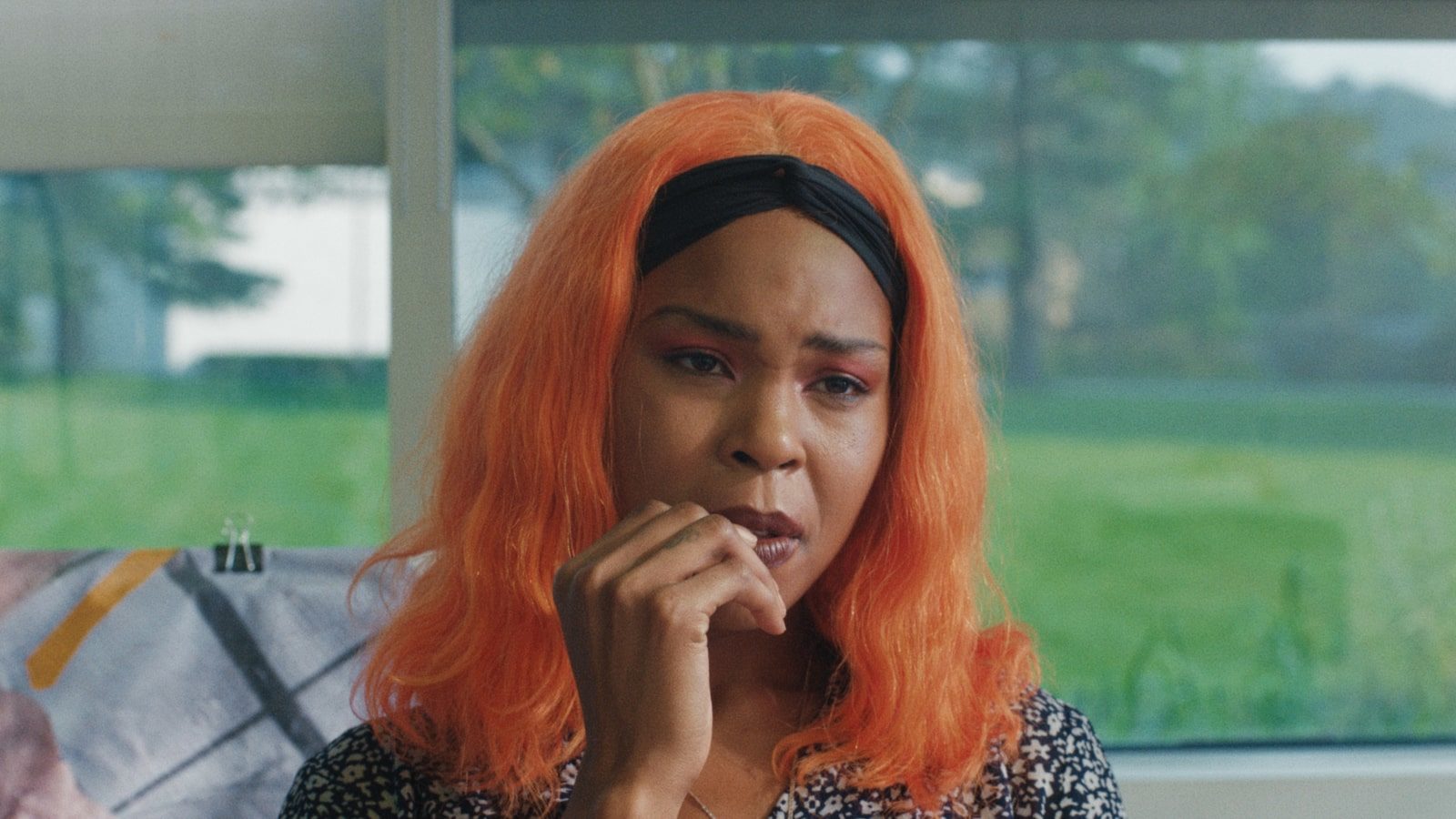
Early into Martine Syms’ The African Desperate, MFA finalist Palace (Diamond Stingily) sits for her last exam in an upstate New York art school tucked deep in the woods. It’s the end of a three-year voyage, the kind of moment that should trigger swaths of pride and relief. But Palace, a Black student in an exceedingly white college, is frustrated, tired, on the verge of a breakdown. Her art has already shown at the Venice Biennale, a feat her all-Caucasian examiners don’t really know how to respond to. (Did she earn a spot because of talent, or…?) Even after they christen her a Master of Fine Arts, the mix of animosity and envy lingers acridly in the room. “There are lots of female artists your age and race making the same stuff you’re doing,” a professor chides her over drinks, “how are you going to differentiate yourself?” – Leonardo G. (full review)
Where to Stream: MUBI (free for 30 days)
Ambulance (Michael Bay)
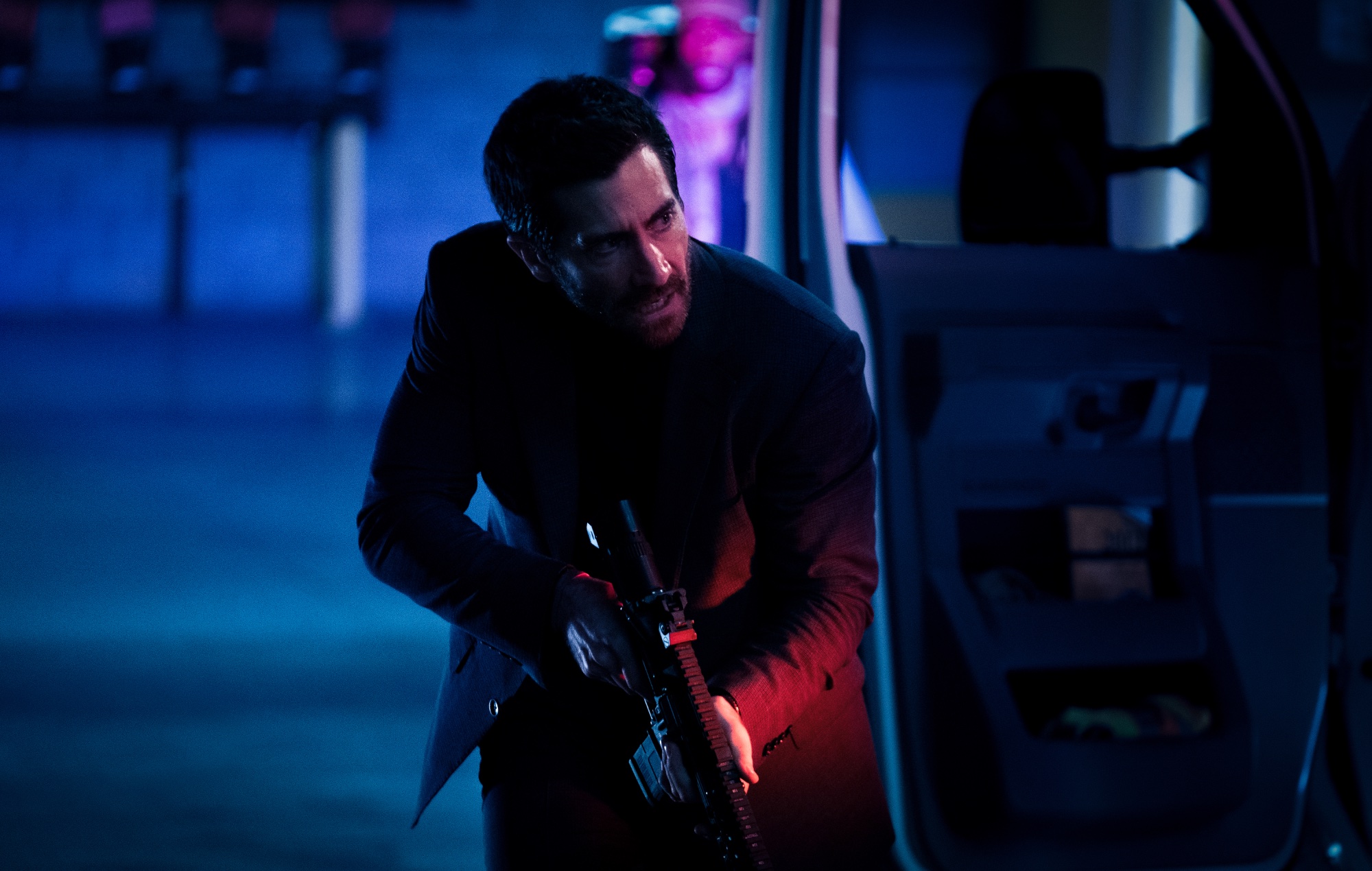
The Marvel machine may be the most fortuitous development for Michael Bay. Though the director hasn’t dabbled in the world of superheroes—despite a fondness for a cinematic universe of the robot variety—the homogenized, green-screen wasteland of today’s box-office behemoths has indirectly led to a reappreciation of the director’s schoolboy giddiness for practical effects and continually upping the ante for where he can place a camera. As bombastic and occasionally mind-numbing as his approach may be, there’s distinct poetry to the momentum of a maximalist vision where previs filmmaking vis-a-vis a committee is not only missing from his vocabulary, but a kinetic approach makes such a proposition nigh impossible. With Ambulance, a streamlined spectacle that borrows liberally from Heat, Speed, and John Q, Bay seems to be at his most comfortable and invigorated in years, milking the ridiculously heightened premise for all its worth while maintaining grounded stakes despite a few bumps along the road. – Jordan R. (full review)
Where to Watch: Prime Video
Anaïs in Love (Charline Bourgeois-Tacquet)

The seasons have changed––spring is here, summer is on the way, and no film out right now better exudes the aura of love in the sunshine than Charline Bourgeois-Tacquet’s Anaïs in Love. Broke, behind on her rent, and considering breaking up with her boyfriend, thirtysomething Anaïs (Anaïs Demoustier) doesn’t quite know what she wants from life. Struggling to complete her thesis, she wanders aimlessly through the film’s first act––a free spirit with no sense of direction but capable of turning heads and drawing the attention of others wherever she goes. She’s like a manic pixie dream girl without the reductive qualities of the trope. Bourgeois-Tacquet creates in her lead an instantly recognizable portrait of a young woman right at that nexus point where not having your shit figured out is starting to look a little bit uncool. – Mitchell B. (full review)
Apollo 10 ½ A Space Age Childhood (Richard Linklater)

A delightful meditation on childhood in the summer of 1969 set literally in the shadows of NASA’s central operations in Houston, Richard Linklater’s contemplative and vividly animated Apollo 10 ½ A Space Age Childhood reflects on the filmmaker’s own experiences. It captures the joy and wonder of childhood through the eyes of Stan (voiced by Milo Coy as a child and, as an adult, a restrained and wise Jack Black), a ten-year-old who fantasizes about being recruited for “space camp” by NASA. His father (Bill Wise), a frugal but caring man, has uprooted his family from the city to a newly built suburban development in the shadow of the Astrodome and Astroworld amusement parks. Black’s adult narrator fills in the blanks for us with whimsical, nostalgic details that highlight just how dangerous childhood can be between abusive coaches, parents that thought nothing of allowing the kids to ride in the back of a pick-up truck at 70 miles an hour, and playing with explosives. – John F. (full review)
Where to Watch: Netflix
Armageddon Time (James Gray)
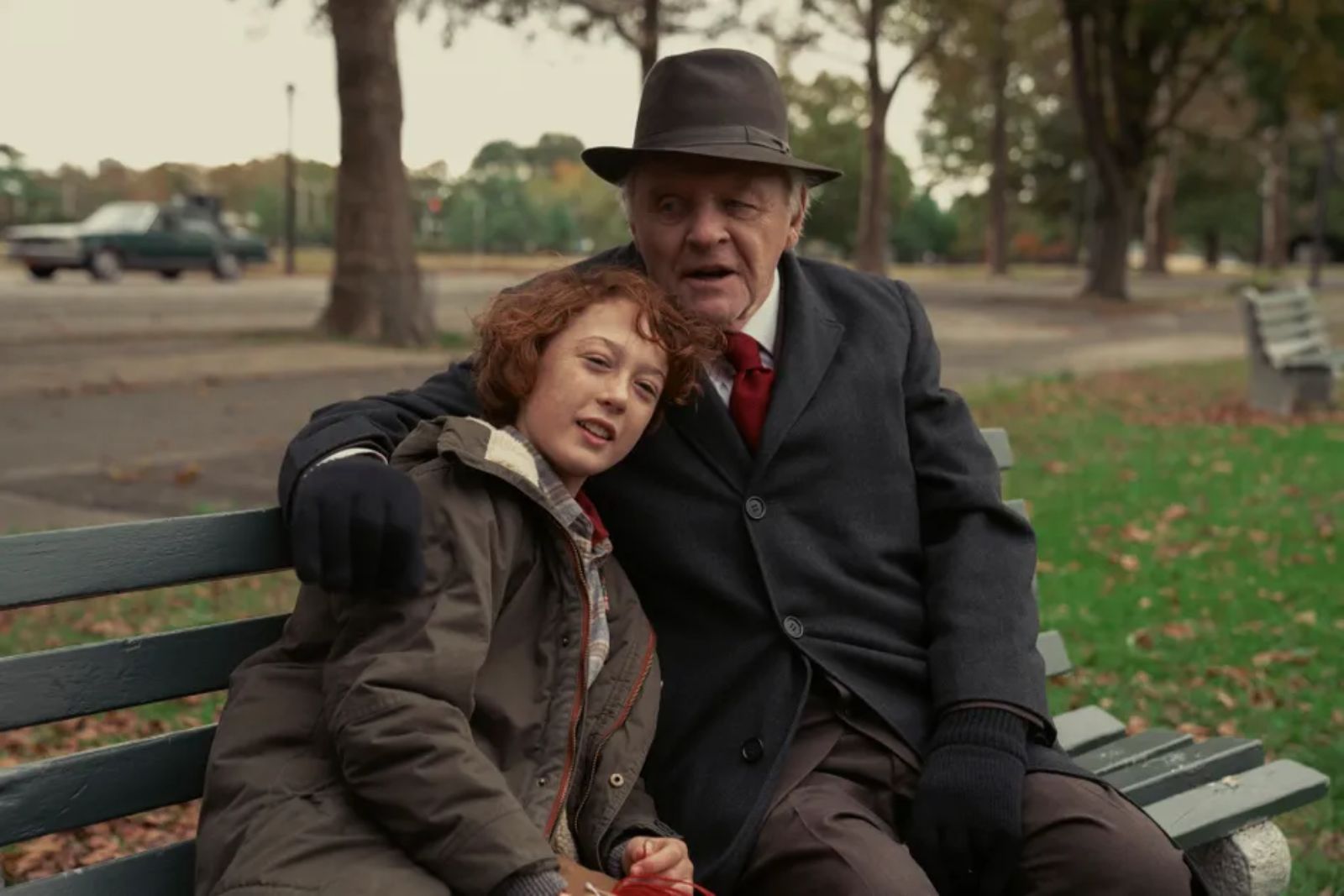
Armageddon Time is the sort of film usually invoked as a “portrait of the nation” or “state of the union address,” something taking the temperature of a country—most likely the United States—at a particular time in history. But it’s also a work that makes self-consciousness a virtue: its wonderful writer-director, James Gray, is informed up to his eyes about the virtues and pitfalls of films like these, and here makes something so idiosyncratically his own but that audiences and critics might still mislabel with one of those aforementioned ideas. – David K. (full review)
Where to Stream: VOD
The Banshees of Inisherin (Martin McDonagh)
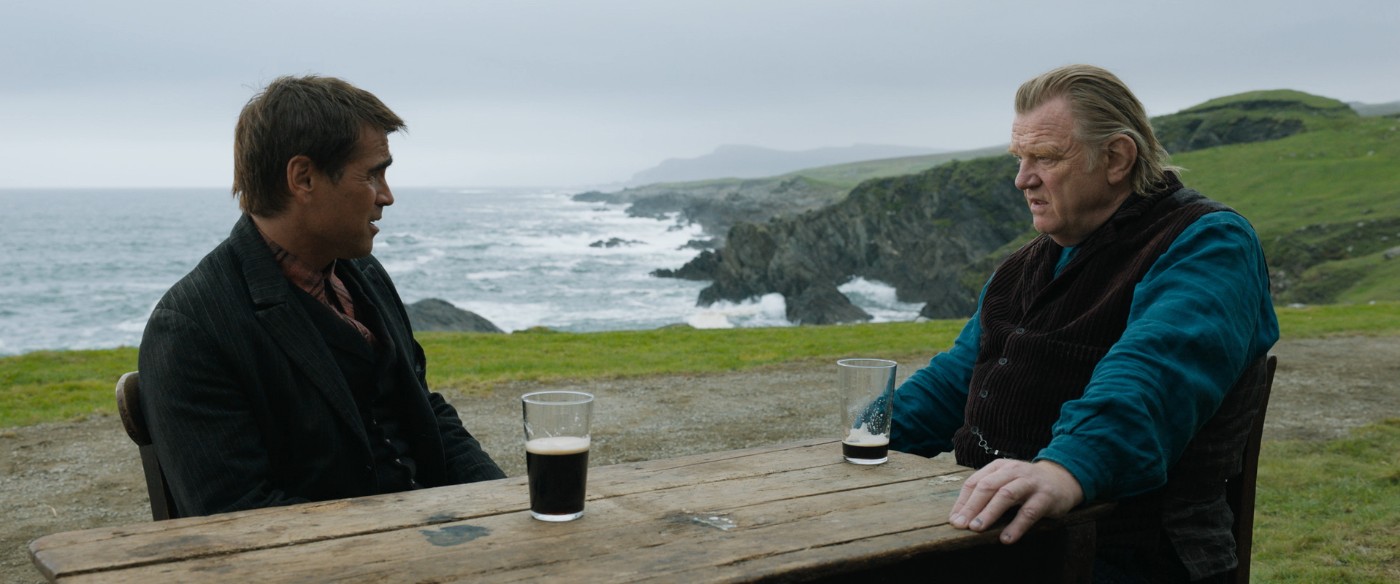
Martin McDonagh’s fourth film marks an In Bruges reunion between the writer-director, Farrell, and Brendan Gleeson. It again finds the two leads as another mismatched, in-a-rut couple of men serving up heaping portions of existential despair and black comedy. But this rut is of a very different ilk—much smaller in scope, lacking villainy, almost cute… until it isn’t. Banshees is McDonagh’s A Straight Story, but he doesn’t go full monty. He works in a few comically violent McDonagh beats that rip us out of the ordinary. But it’s the permeating sense of normality, routine, and unremarkableness that gives them their punch. To note the simplicity, he opens on a white screen with a glowing white font. (Why does that feel like a theater-director move?) – Luke H. (full review)
Where to Stream: HBO Max
Benediction (Terence Davies)
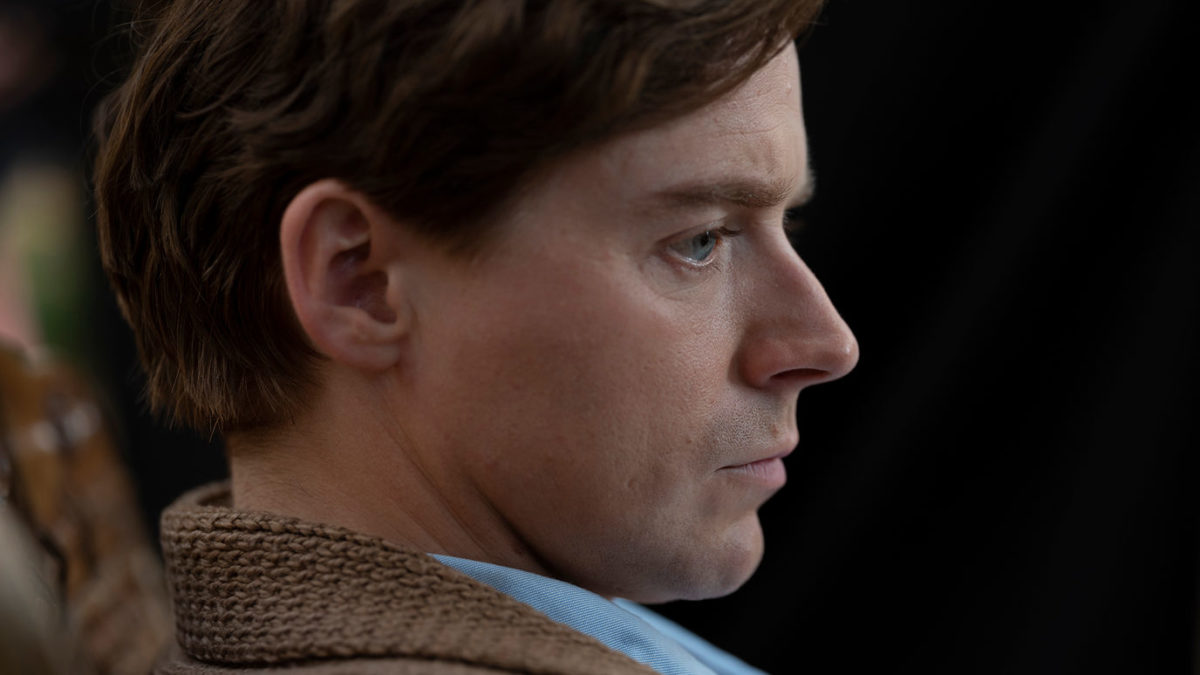
Time is everything in a Terence Davies film. In Benediction, his biopic about English poet Siegfried Sassoon (Jack Lowden), he eventually covers his subject’s marriage to Hester Gatty (Kate Phillips). There’s a shot of the couple standing still, facing the camera as they pose for a wedding photo (a shot that tends to pop up throughout the director’s filmography). The camera flashes, we see the black-and-white photo, and then a fade transitions us to the future, where it rests on their bedside while Hester looks at their newborn child. The sequence is an encapsulation of what Davies does best: observing life with one’s head facing backwards, the cumulative weight of the past bearing down on every moment of the present. – C.J. P. (full review)
Bones and All (Luca Guadagnino)
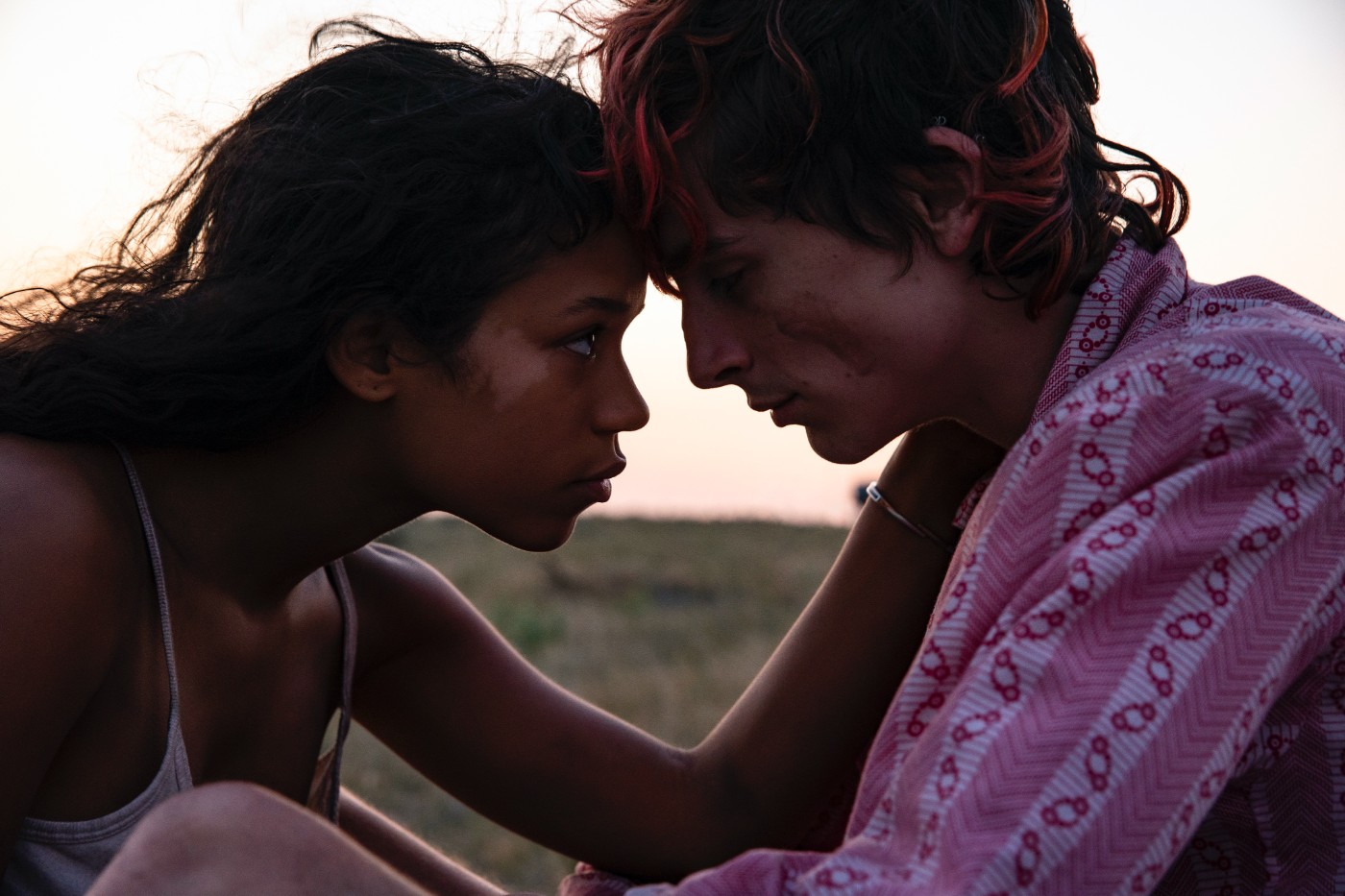
The last narrative feature Luca Guadagnino directed was a 2018 remake of Suspiria, and his angle was vicious—a dark, mangled body horror so carnal it leaves the original looking like an episode of Sesame Street. The year before that he exploded onto the scene with Call Me by Your Name, the heartwrenching gay Italian countryside romance that thrust Timothée Chalamet into a peach and, thus, the pop-cultural spotlight. Guadagnino’s now back with a fusion of the two: a fleshy, gory body horror romance that rips your heart right out of your chest, Bones and All. – Luke H. (full review)
Where to Stream: VOD
Both Sides of the Blade (Claire Denis)
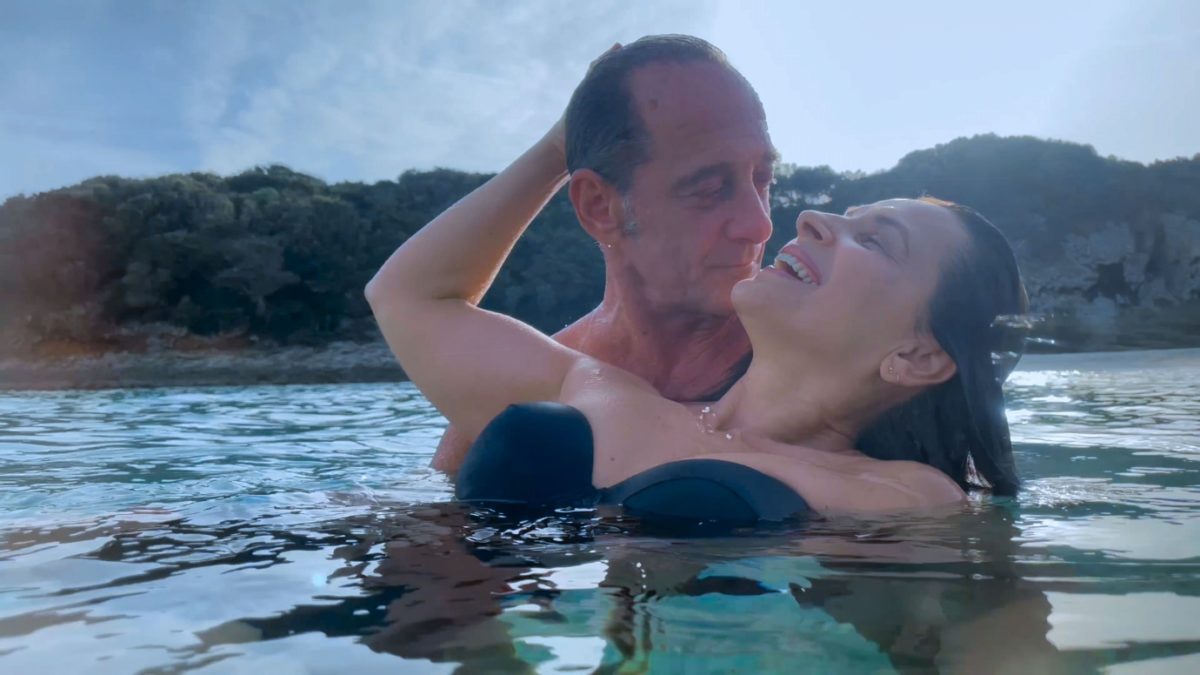
In Both Sides of the Blade a romance breaks down and threatens to break up in a stylish apartment overlooking the sweet Parisian skyline. The director is of course Claire Denis, a filmmaker whose last work began in a place that looked like Eden and ended in a spaceship plummeting toward no less than a black hole. A baroque melodrama that might just maybe be a trolling farce, Both Sides of the Blade‘s concerns are of a more earthbound variety–though if the insistent strings of Tindersticks’ score are something to go by, they are of no less importance. – Rory O. (full review)
Where to Stream: VOD
The Cathedral (Ricky D’Ambrose)

What makes the fabric of our upbringing? The memories we’ll reflect on after those years have passed are often not what we may hold onto in a moment filtered and refracted through a thousand more experiences. Following his hour-long debut feature Notes on an Appearance, Ricky D’Ambrose’s Bressonian style continues with The Cathedral, a less intellectually rigorous outing that still impresses with its sense of personal significance, recreating slivers of a life experience over some two decades to form a vivid recollection of both the fracturing of a family and the United States at large. It’s an ambitious undertaking for an 87-minute film, and while this lofty aim can result in a few passages striking a bit broad, one comes away admiring D’Ambrose’s meticulously committed approach to storytelling. – Jordan R. (full review)
Where to Stream: MUBI (free for 30 days)
Crimes of the Future (David Cronenberg)
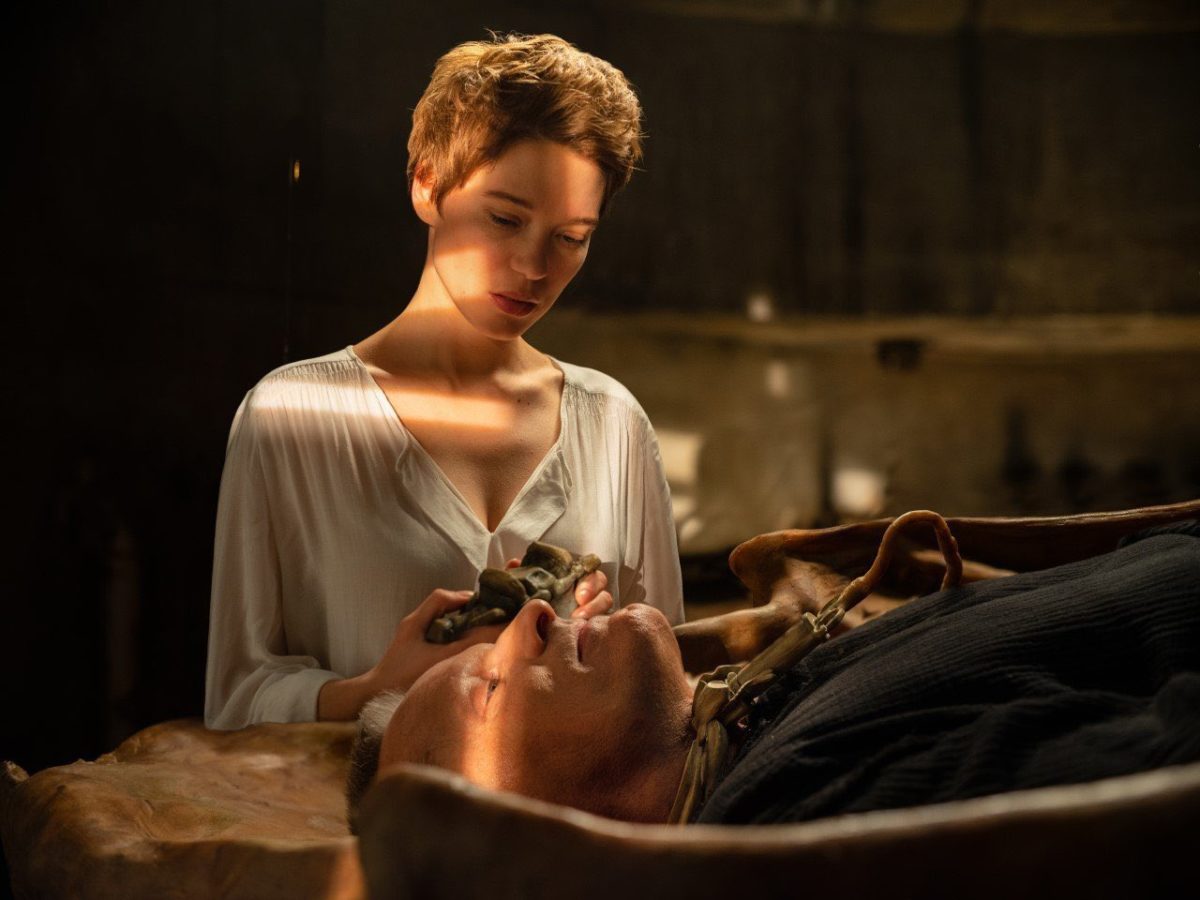
In Crimes of the Future, an underground movement of performance artists try understanding a world in which humans grow new organs on a regular basis and pain, for some reason, has vanished. The director, of course, is David Cronenberg, back with his first film in eight years and just the second original screenplay he has developed since 1999’s eXistenZ. Since its announcement last year Crimes has been marketed as Cronenberg’s long-awaited return to body horror, a lubricious realm that he hasn’t fully embraced since… 1999’s Existenz. Miraculously, it delivers on that promise: a film of erotic surgery and designer organs; in which a live autopsy is performed on a young boy for a crowd of trendy onlookers; and in which the recently regal Kristen Stewart gives a performance so tweaked it might actually be the embodiment of edging. – Rory O. (full review)
Deception (Arnaud Desplechin)
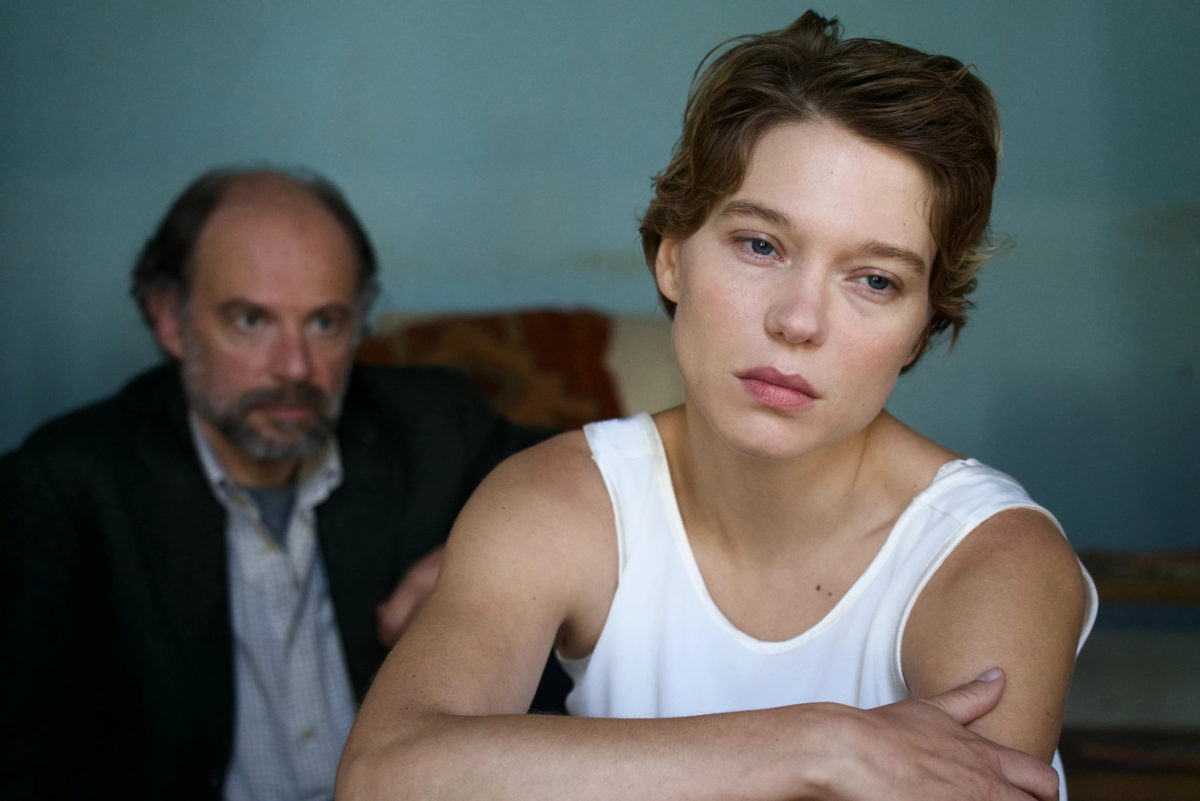
One of the most curious developments the last handful of years is a general dismissal of Arnaud Desplechin here in the United States. His Cannes opener Ismael’s Ghosts came and went without much fanfare; his follow-up, the entertaining procedural Oh Mercy!, didn’t even get distribution. His riveting Philip Roth adaptation Deception, starring Léa Seydoux and Denis Polydalès, marks the best cinematic translation of the author’s work. After premiering at last year’s Cannes it finally saw the light of day courtesy a MUBI release. Nick Newman recently caught up with Desplechin to discuss this latest project, and you can read the full interview here.
Where to Watch: MUBI (free for 30 days)
Decision to Leave (Park Chan-wook)
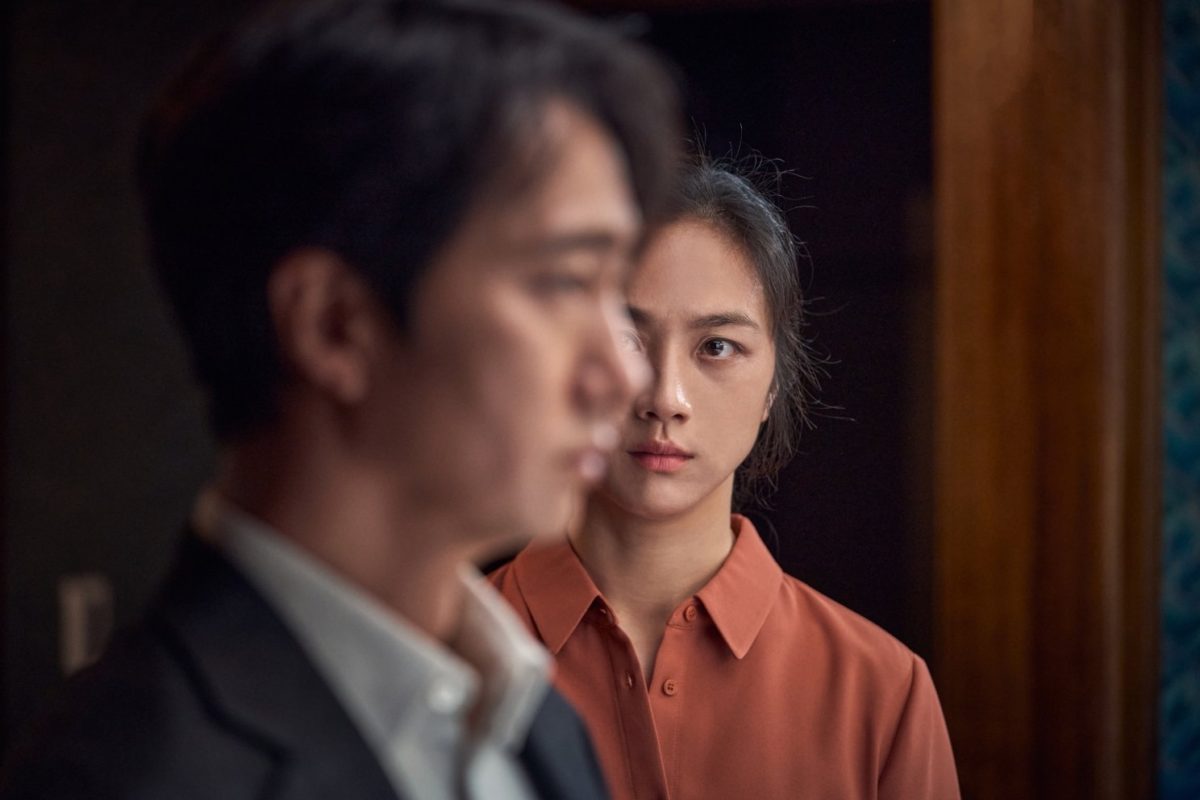
“Congratulations… it’s a murder.” A backwards thing to celebrate? Not when you’re a droll insomniac detective who’s only happy (read: not miserable) when you’re investigating a killing, the likes of which have been absent lately. And especially not when that killing means an encounter with the lowkey crush exponentially consuming your thoughts. Alas, Park Chan-wook––eloquently maximalist writer-director behind Oldboy and The Handmaiden––is no stranger to bizarre characterization. – Luke H. (full review)
Where to Stream: MUBI (free for 30 days)
Descendant (Margaret Brown)
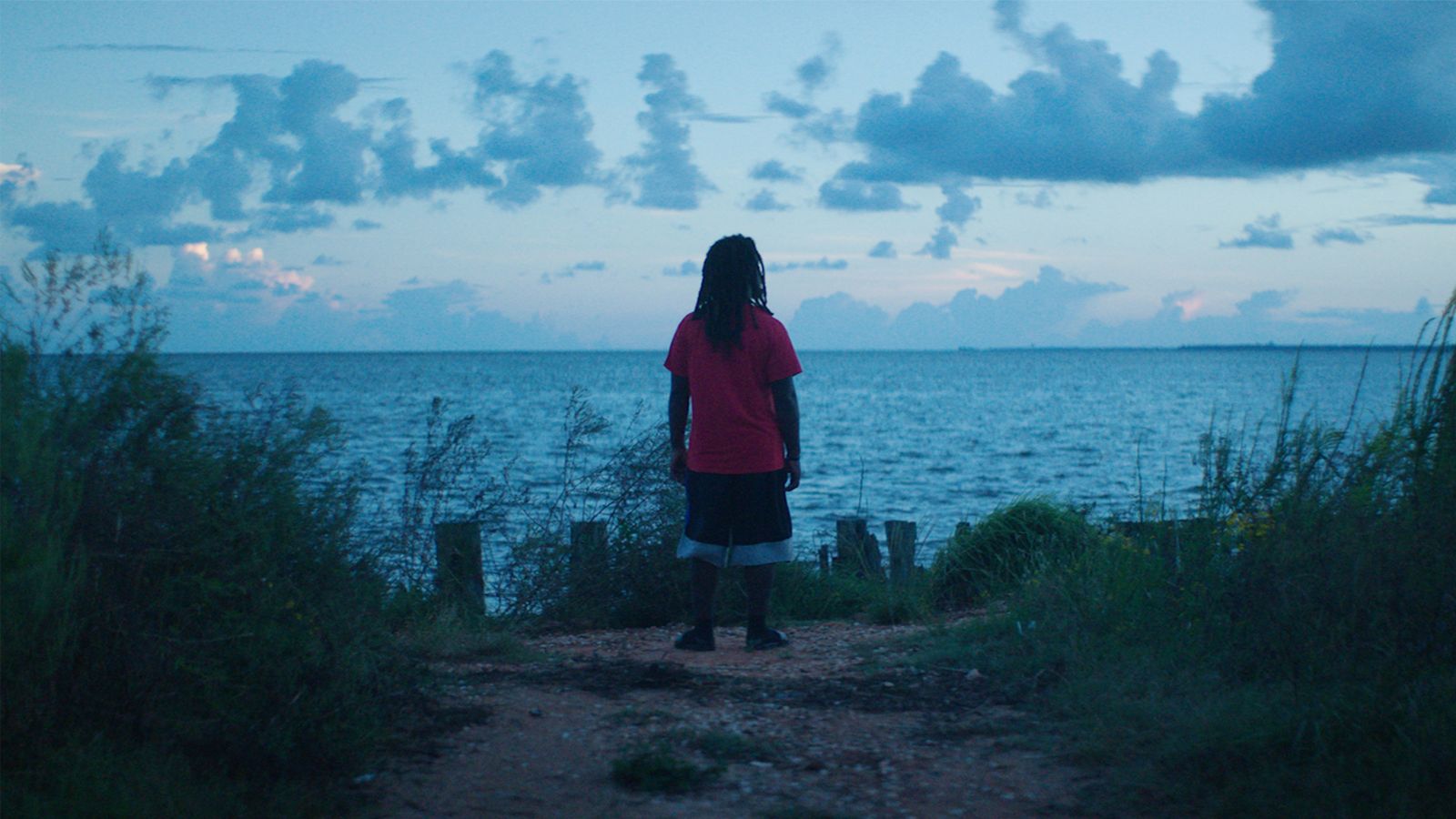
Over half a century after international slave trade was abolished in the United States, Timothy Meaher made a bet that he could transport a ship of captives from Africa to the Alabama coast. As owner of the ship The Clotilda, following the 1860 voyage which brought 110 people from West Africa to Mobile, Meaher covered up his crimes (which could have brought him to death) by burning and sinking the vessel. More than 150 years later, Mobile’s Africatown community––made up of direct descendants whose ancestors were ripped away from their lives of freedom––are searching for truth and closure as the remnants of the slave ship remained a buried mystery. As captured in Margaret Brown’s intimate, powerful documentary Descendant, the quest for answers and the story of how this overlooked community has been marginalized throughout history has ripples far beyond a sunken ship. – Jordan R. (full review)
Where to Stream: Netflix
The Eternal Daughter (Joanna Hogg)

In the tradition of Okja and Hail, Caesar!,writer-producer-director Joanna Hogg has gifted the world with two Tildas (Swinton, that is) in one film. Just shy of Suspiria and Teknolust’s respective triple- and quadruple-Tilda count, The Eternal Daughter uses this device differently than others. Where Bong Joon-ho and the Coens employed such technique for twins and Guadagnino and Hershman-Leeson used it for science fiction and horror, Hogg plays it more subtly: mother and daughter. Or, to boil them into one, an eternal daughter. – Luke H. (full review)
Where to Stream: VOD
The Fabelmans (Steven Spielberg)
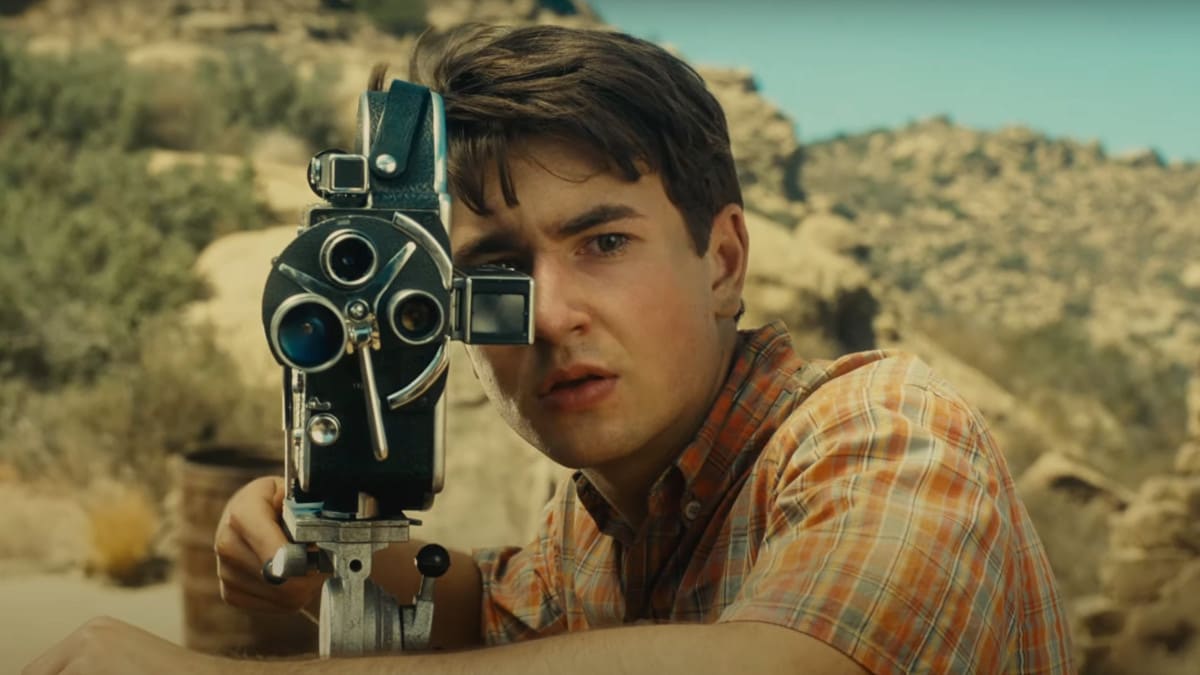
Judging from the pre-release information surrounding Steven Spielberg’s The Fabelmans, it was clear the endeavor could attain the label of the master director’s “most personal film.” Now that it has finally arrived, with a world premiere at the 2022 Toronto International Film Festival, it is clear this prediction was no lie. It is obviously personal, yes, but also deeply autobiographical. Any Spielberg fan knows these beats: an early fascination with cinema; the move to Arizona; a difficult parental dynamic, with a driven father and loving-but-conflicted mother; ambitious 8mm films made with sisters, neighbors, and anyone else willing to lend a hand; a much less pleasant move from Arizona to California; teenage years fueled by creativity, but also impacted by a feeling of outsider status; and, ultimately, the first steps into a world he would eventually dominate. – Chris S. (full review)
Where to Stream: VOD
Funny Pages (Owen Kline)
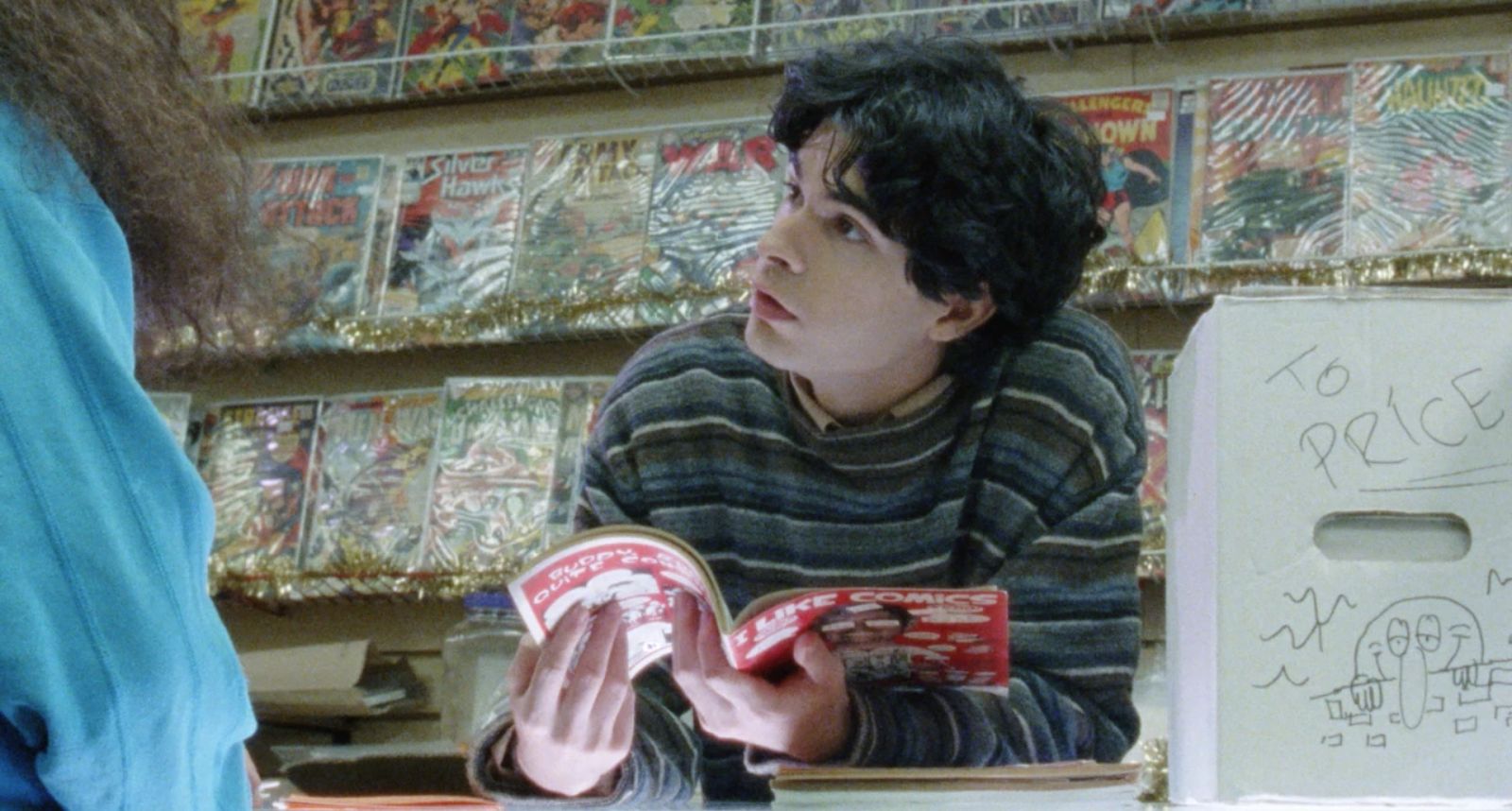
The deranged lunatics populating Owen Kline’s absurdist, bleakly hilarious Funny Pages are all somewhat anachronistic; loners who gravitate around old things and old places, one foot always firmly rooted in the past. Even teenage Robert (Daniel Zolghadri) nurses what feels like an age-inappropriate nostalgia. A high school senior stranded in an anonymous suburban stretch of Princeton, NJ, he works at the local comic store while daydreaming of becoming a cartoonist himself. But the comics he loves and devours with pantagruelian appetite are much, much older than him—the kind of niche, underground relics no one seems to recognize, much less appreciate. Funny Pages tracks Robert’s coming of age, but Kline (here in his directorial feature debut) dexterously avoids the genre’s trappings. His isn’t just a portrait of a most complicated chapter in a young man’s life, but an homage, in turns affectionate and savage, to an untimely culture and untimely breed of people, forever out of synch with the world around them. – Leonardo G. (full review)
Where to Stream: VOD
The Girl and the Spider (Ramon and Silvan Zürcher)
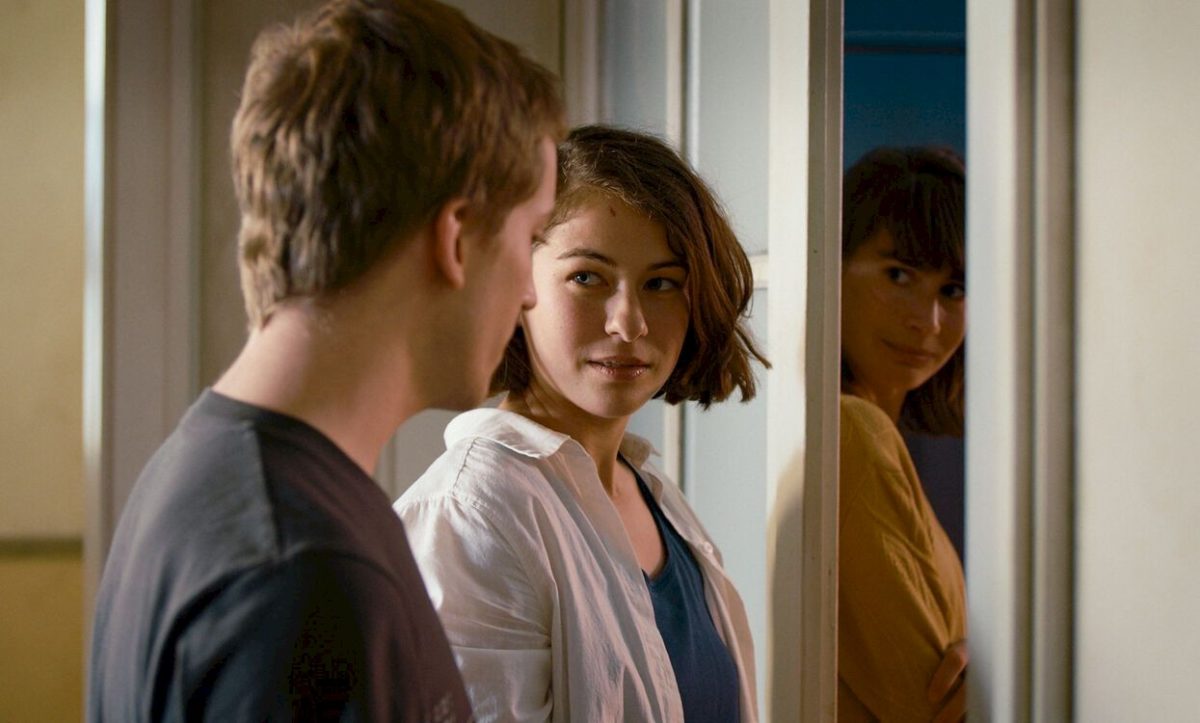
Ostensibly the story of a Berlin family preparing for its evening dinner as a cat wanders the apartment, The Strange Little Cat was among the most beguiling films of the early-to-mid 2010s and its more mysterious explorations of everyday family life. With the 2021 Toronto International Film Festival entry The Girl and the Spider, director Ramon Zürcher returns, with brother Silvan Zürcher as co-director. (The latter produced The Strange Little Cat.) Spider is equally captivating––a mesmerizing, uniquely ambiguous study of friendship, rivalry, tension, and memory. It is difficult to remember another recent film that does so much with so little in the way of plot and location. – Chris S. (full review)
Where to Watch: VOD
Great Freedom (Sebastian Meise)
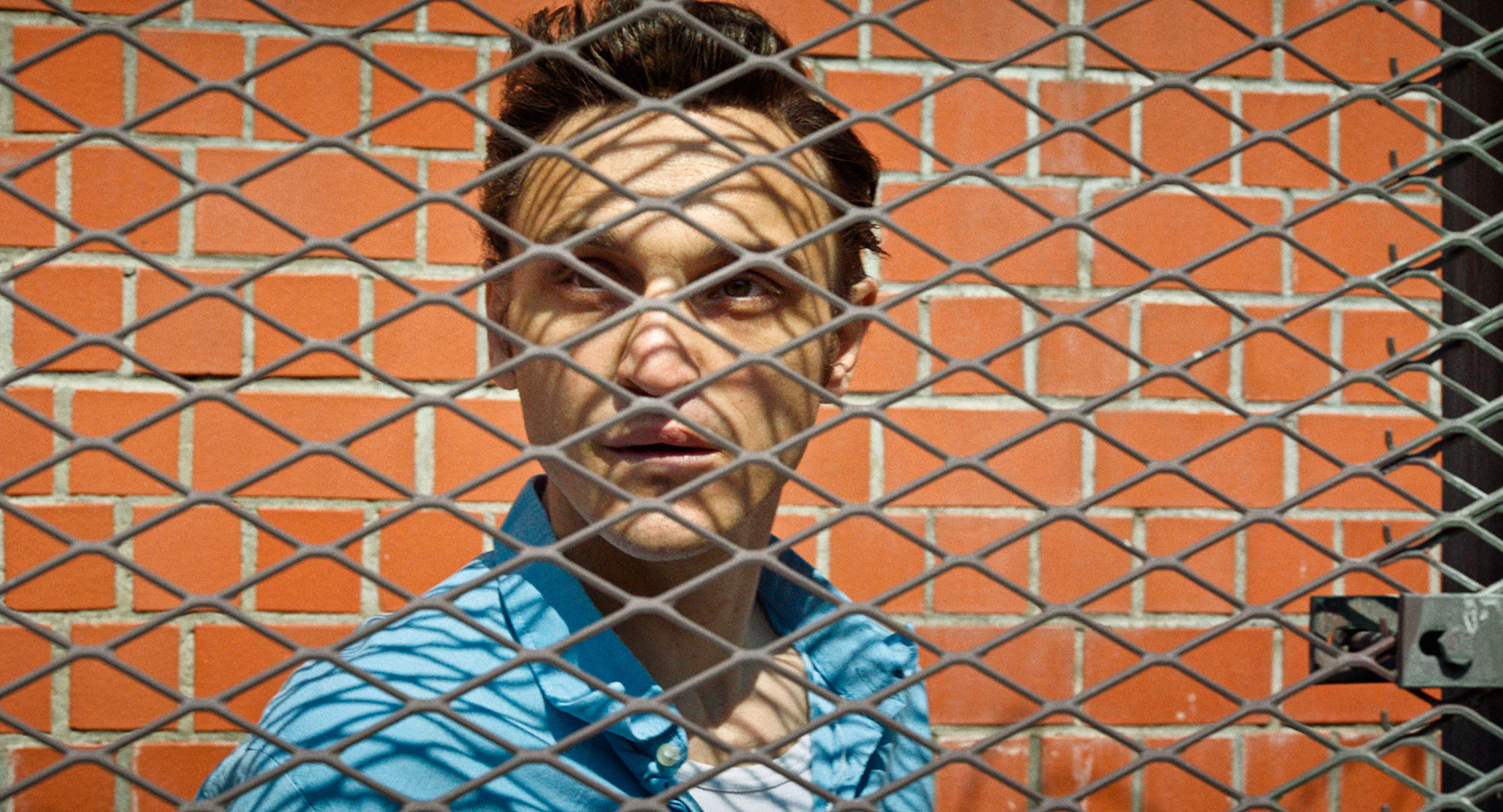
Its decades-spanning story centers on Hans (Franz Rogowski), a gay man who has lived through Nazi persecution only to find himself in a world where homosexuality continues to be deemed not only perverted but a criminal offense. We first meet Hans in 1968 as a middle-aged man. He’s caught by the police for having sex with men in public toilets and sentenced to two years’ imprisonment. He goes through the procedures, checks all his liberties at the prison gate, and picks up his new daily grind without so much as batting an eyelash. Even when standing up for young inmate Leo (Anton von Lucke) and landing in solitary confinement there seems to be no fear, no surprise, no protest. Just when one thinks he’s acting way too calm in such situations, the movie jumps back to 1945 and introduces us to a fresh-faced Hans in jail for the first time. Eventually we’d see another prison stint of Hans in 1957 and realize how many times he’s been through this and what motivated him to do what he does in 1969, following the decriminalization of homosexuality in Germany. – Zhuo-Ning Su (full review)
Where to Watch: MUBI (free for 30 days)
Guillermo del Toro’s Pinocchio
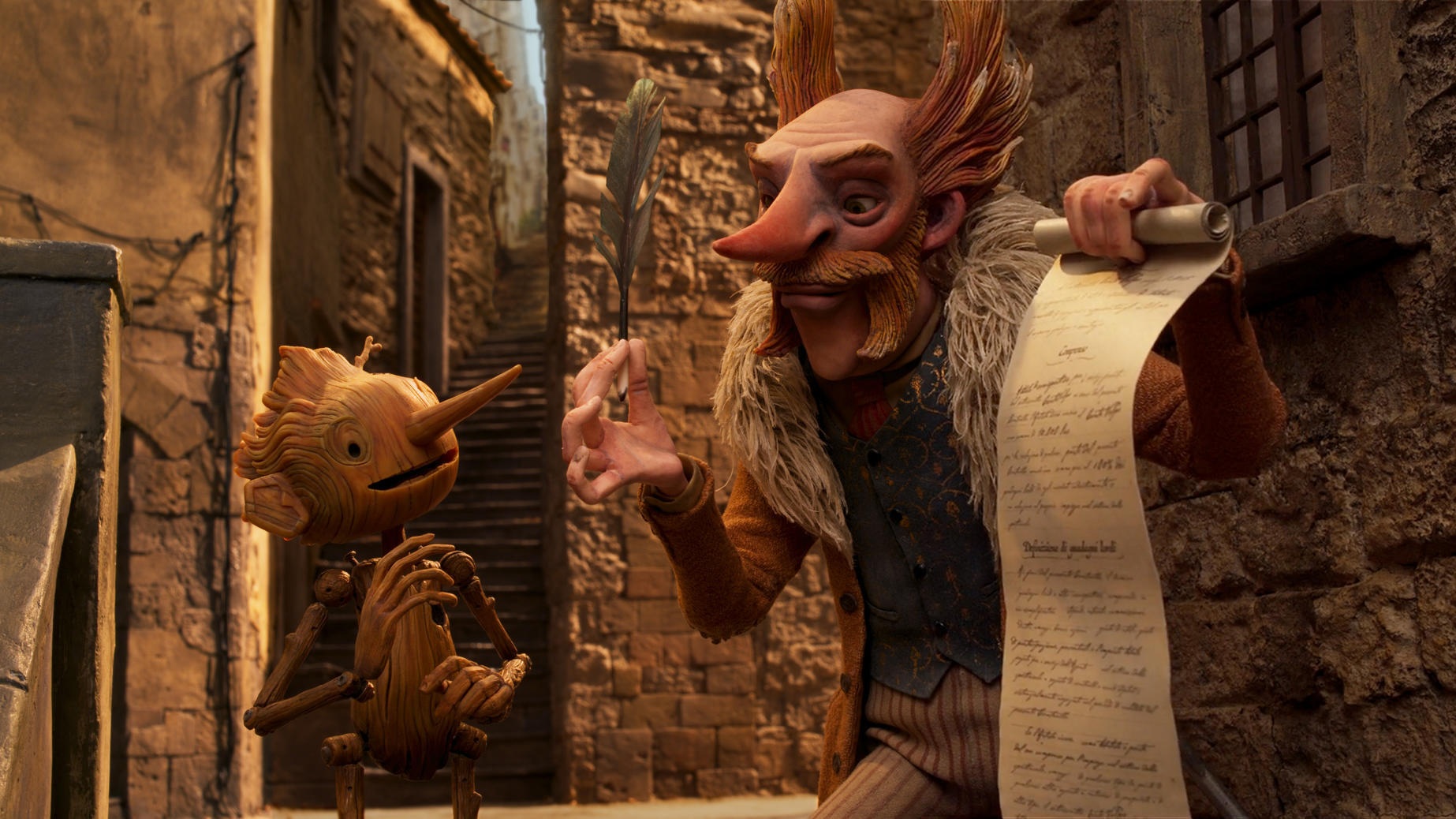
Guillermo Del Toro and Mark Gustafson’s stop-motion adaptation, premiering a little over a month after the Zemeckis take kicked up a stink on streaming, might be the finest Pinocchio to have ever graced our screens, largely because it refuses to stay reverential to the material even if it is inherently inspired by and indebted to it. All of Del Toro’s films are personal, but this might be the one closest to him in his entire back catalogue: a tale of new life transformed into one overwhelmed and overshadowed by grief that entered development following the death of his father in 2018, an event which seems to have drastically reshaped the long-gestating passion project he’s had in the works since 2008. Here we’re introduced to Geppetto (David Bradley) in flashback, where we witness his young son lose his life in a tragic wartime accident, an act that fills him with a loss even the arrival of a magical wooden boy can’t fix. – Alistair R. (full review)
Where to Stream: Netflix
Is That Black Enough For You?!? (Elvis Mitchell)
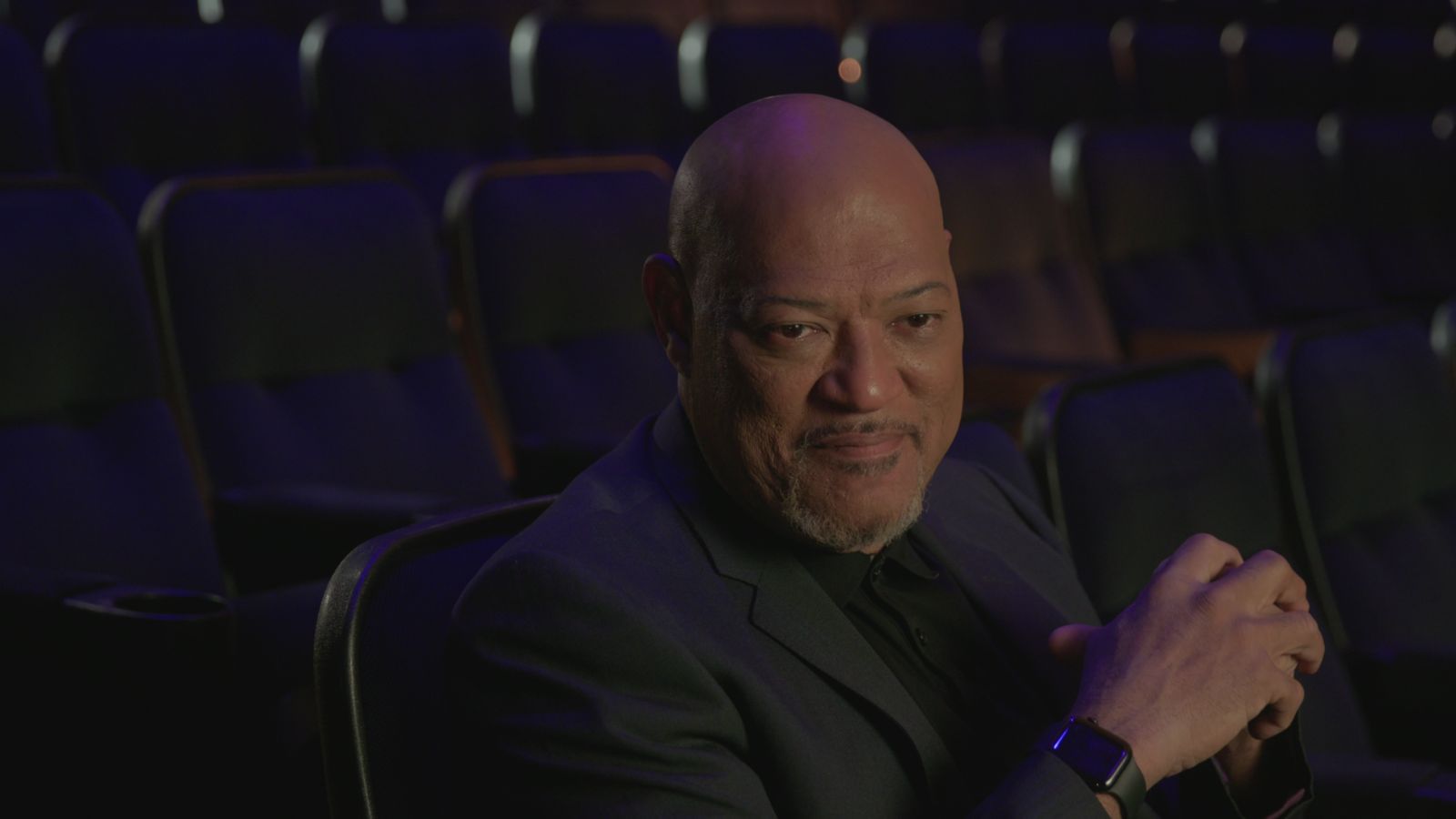
A comprehensive, personal, and kaleidoscopic look at representation, Elvis Mitchell’s Is That Black Enough For You?!? is a passionate and loving walk through film history framed by Blaxploitation cinema of the 1970s. Written, directed, and narrated by the master conversationalist, curator, film scholar, and cultural critic, this is a densely packed visual essay told through film clips, archival materials, and interviews with Black stars of multiple eras who speak to the influence of this sub-genre on their lives and careers. – John F. (full review)
Where to Stream: Netflix
In Front of Your Face (Hong Sangsoo)

By evidence, Hong Sangsoo may never make an Oki’s Movie or Hill of Freedom-type work again; our maestro is shooting for bigger emotional game. It’s fascinating to observe how idiosyncratic directors make their way towards the arthouse mainstream. With Hong, arguably, it’s come from two sources: less of a rigid fixation on male vanity, neurosis, and inebriation, coupled with plot summaries you could describe in a brief, eloquent sentence. Oki’s Movie, for instance, approaches a Faulkner-esque writer with its digressive intricacy; The Day He Arrives is like a fractal Groundhog Day. This is well-rehearsed, but there’s something to be said for emotional transparency and an examination of things “as they are,” to paraphrase dialogue from In Front of Your Face’s lead character. Another well-rehearsed question: are we yet again in self-portraiture mode, for someone with a Dorian Gray-like attic full of them? – David K. (full review)
Where to Stream: VOD
Introduction (Hong Sangsoo)

First paragraphs of Hong Sang-soo reviews often dwell on the Korean master’s penchant for self-repetition, soothing readers that narrow expectations will be fulfilled. Let’s take a different course. This new work, Introduction, which charts a variety of fraught social “introductions” across different relationships, caused reflection on my first impressions of a director who’d soon become a reliable favorite, before any expectations could be tweaked or swerved. That film, 2013’s Nobody’s Daughter Haewon, made me think I was observing one of the chintziest, lowest-fidelity trifles imaginable, one hilarious fake-out gag with Jane Birkin notwithstanding. What might an unsuspecting viewer confronted with this film make of its unfriendly visage? – David K. (full review)
Where to Watch: VOD
Kimi (Steven Soderbergh)
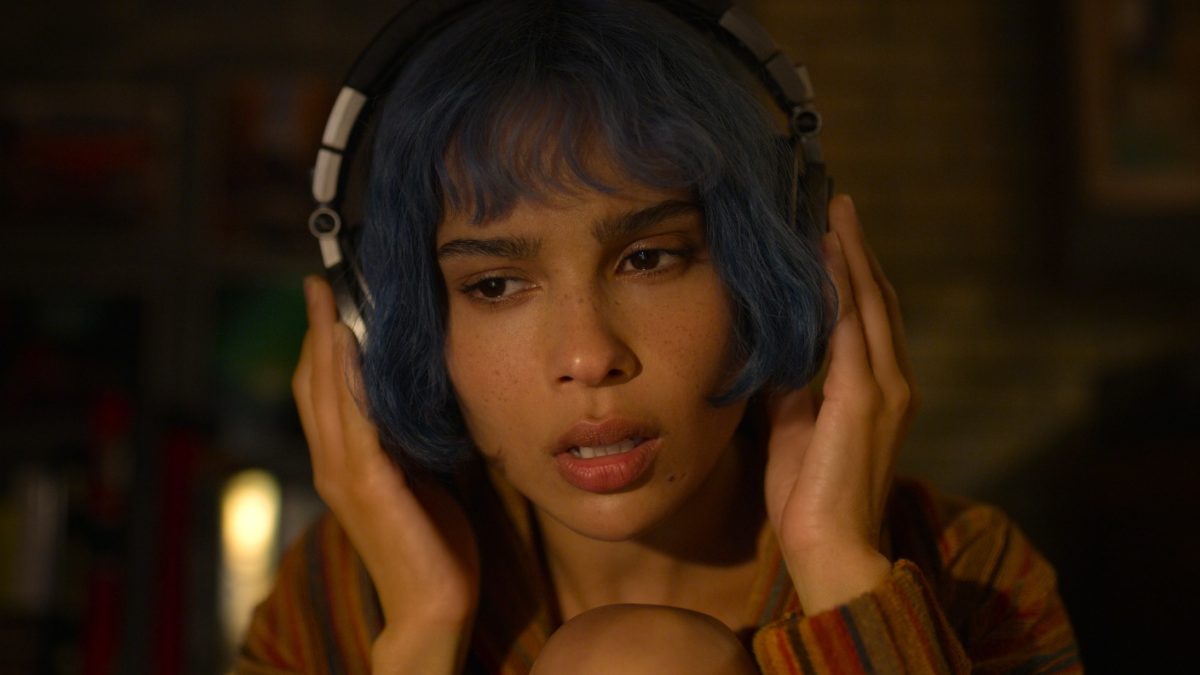
The double-edged sword of modern technology—the simplification it can offer our lives and its all-consuming pervasiveness—is at the heart of Kimi, Steven Soderbergh’s acutely efficient and effective pandemic-set paranoia thriller, but that is not the only thing on its mind. Powered by an affecting lead performance from Zoë Kravitz, its brisk narrative also contends with no shortage of other topics: debilitating, trauma-induced anxiety; pandemic-spurred loneliness; bureaucratic gaslighting; and, least importantly but most humorously, the annoyance of background distractions on Zoom work meetings. As an impressive melding of grounded, relatable stakes and heightened B-movie jolts, one wonders why it took this long for the director to team with writer David Koepp, whose inclination towards pure entertainment is an ideal match with Soderbergh’s fleet-footed, slick sensibilities. – Jordan R. (full review)
Where to Watch: HBO Max
Jackass Forever (Jeff Tremaine)

Jackass has been in our lives for more than two decades. Since October 2000, when the original show premiered on MTV, Johnny Knoxville and his gaggle of goofballs have appealed to lowest-common-denominator comedic impulses. They’ve slammed their testicles into things and had them slammed into by other things. They’ve gleefully dove into danger and gotten legitimately hurt. They’ve aggravated and disturbed an entire generation of people who got Reagan and Clinton elected. But then, for another generation, they brought laughter and some earnest sense of camaraderie. Since the halcyon days of the show (which Knoxville quickly ended himself after the ire of a boomer nation called for censorship), Jackass has endured in cinematic form. The first film saw surprising box office returns amongst a slew of negative critiques. The reputation of the gang and its stunts only improved while the money continues rolling in. – Dan M. (full review)
Where to Watch: Paramount+, VOD
Mad God (Phil Tippett)

In Mad God, a character called “The Last Man” (played by the great Repo Man director Alex Cox) runs a laboratory sending miniature explorers into the bowels of a layered Dantean hell that might be a reflection of his own psyche––or more likely still: that of the filmmaker. The man in question is Phil Tippett, a legendary Hollywood special effects guru, two-time Oscar winner, and Ray Harryhausen disciple whose eye-watering résumé reads like a highlight reel of 21st-century pop culture ephemera: designing the Cantina masks, AT-ATs, and Jabba the Hutt for George Lucas; being credited as “Dinosaur Supervisor” on Jurassic Park; and animating everything from the holochess set on the Millennium Falcon to the ED-209 in Robocop and the swarming hoards of bugs in Starship Troopers. What a life. – Rory O. (full review)
Montana Story (Scott McGehee and David Siegel)
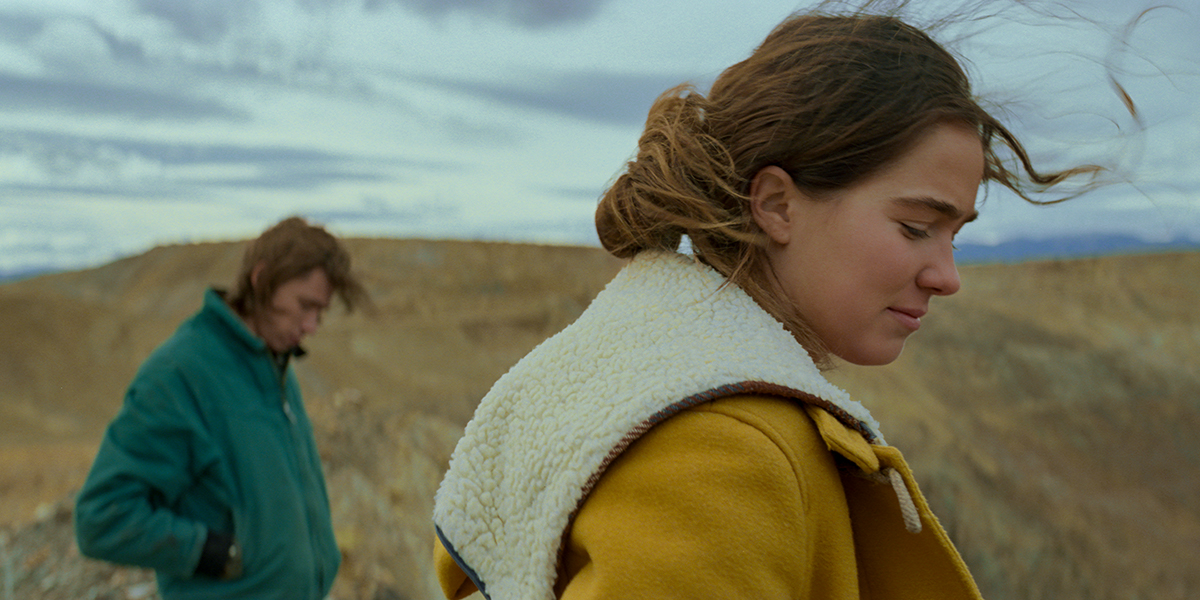
It takes a certain amount of expertise to build a narrative without telling the audience everything as soon as possible. In Montana Story, filmmakers Scott McGehee and David Siegel demonstrate incredible restraint and a hefty trust in their audience. The basic premise: two siblings converge to face old sins and lingering scars as their father lies comatose in the final days of his life. McGehee and Siegel have been turning out impressive pictures for thirty years; this is their most nuanced to date. – Dan M. (full review)
Where to Stream: VOD
Moonage Daydream (Brett Morgen)
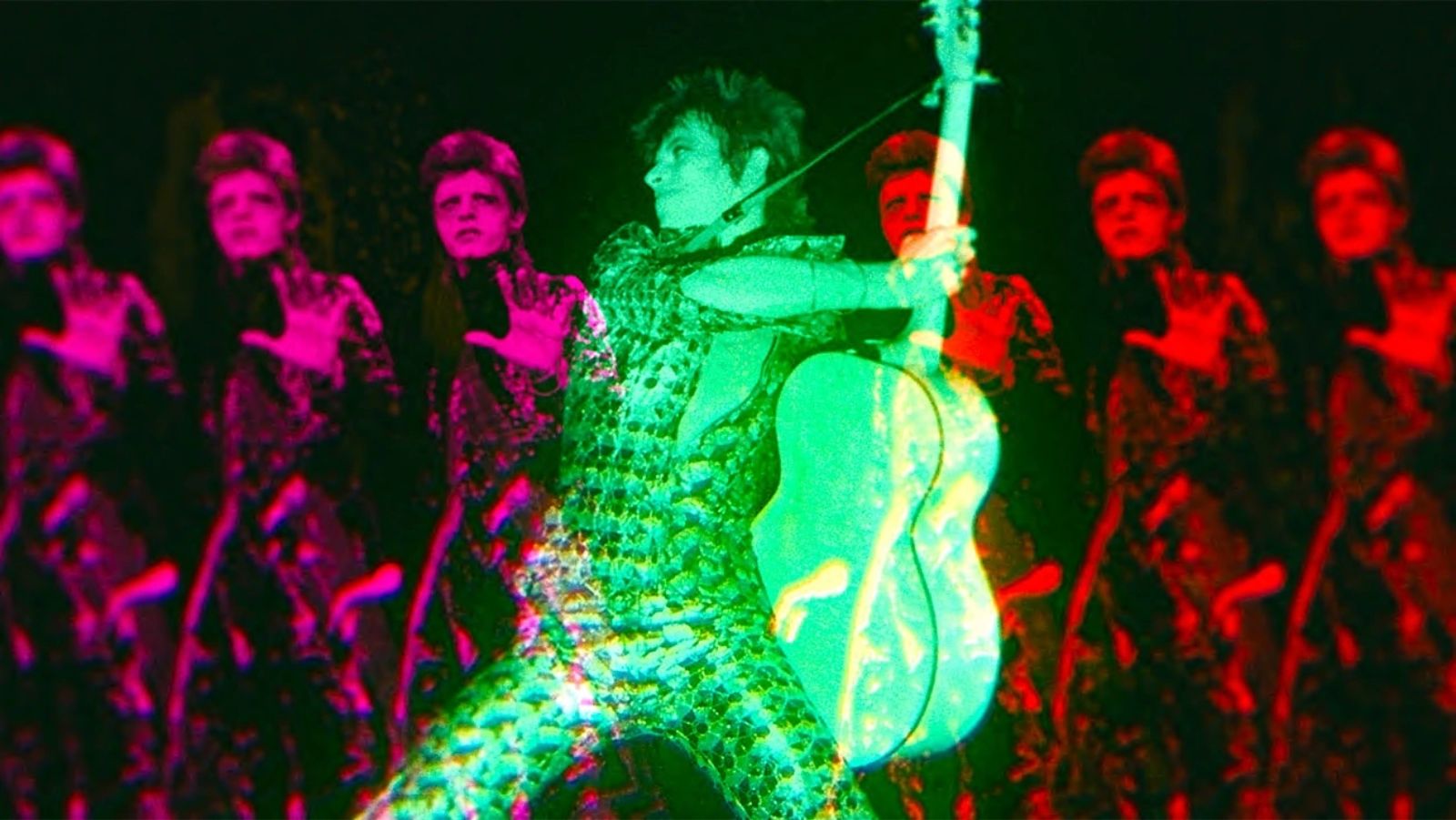
Brett Morgen—venerated documentarian behind Cobain: Montage of Heck and Jane—is the first filmmaker to land a project sanctioned by the Bowie estate. He did not take this for granted. Moonage Daydream is a radiant, psychedelic voyage through the artist’s life, soul, and work that offers a novel approach, gobs of unseen footage, and cosmic insight into Bowie’s ontologies from the demigod himself. – Luke H. (full review)
Where to Stream: VOD
Murina (Antoneta Alamat Kusijanovic)
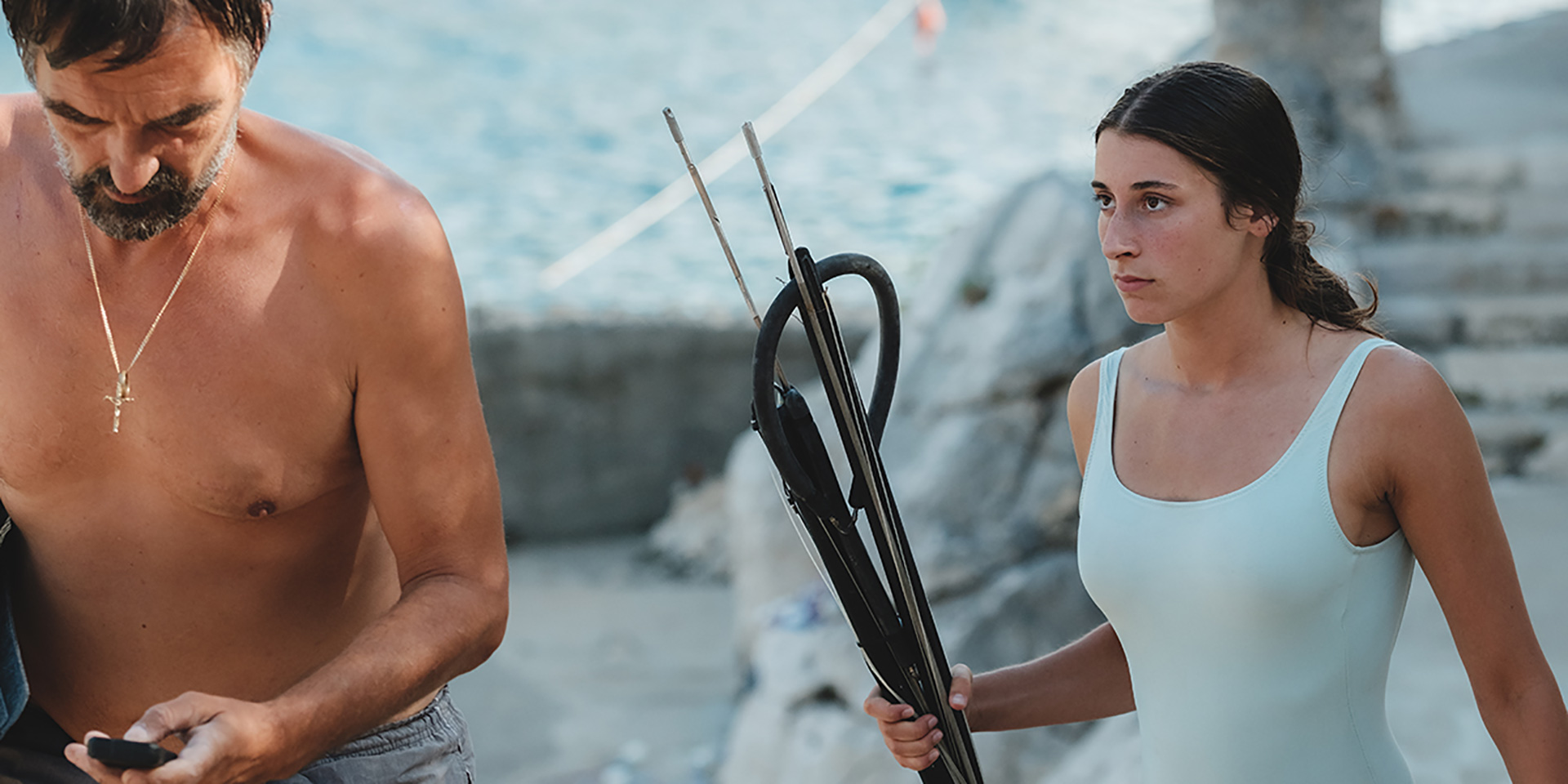
We often forget that exotic locales aren’t an escape for those living here. While co-eds dock ashore for sun, sex, and fun, families merely wake up early to go spearfishing so they have dinner that night. The psychological toll of constantly looking out your window at happy faces while dealing with the futility of teenage living under a domineering father with few (if any) opportunities to leave must be daunting. So when Julija (Gracija Filipovic) exits the water to see her father’s (Leon Lucev’s Ante) rich friend from a past life (Cliff Curtis’ Javi) has arrived, she wonders about the possibilities he brings. Ante and her mother (Danica Curcic’s Nela) hope to sell him land. Julija hopes he’ll save her. – Jared M. (full review)
Where to Stream: Showtime, VOD
A Night of Knowing Nothing (Payal Kapadia)

A Night of Knowing Nothing, the debut of Indian filmmaker Payal Kapadia and winner of the Oeil d’or for Best Documentary at last year’s Cannes, cannily fuses two forms of knowing, or two ways of absorbing an important moment in one’s life: experiencing and its near-opposite, remembering. Through its slippery cinematic language and elusive point-of-view, Kapadia depicts a moment happening urgently in the film’s present-day strand––a wave of anti-government student protests and their resulting crackdown––and treats it like memory, which we know operates as anything but a direct mental recording device. Jonathan Rosenbaum convincingly argues that a film can’t be both incoherent and political––at its best, A Night of Knowing Nothing offers a challenge to this idea. – David K. (full review)
Where to Watch: The Criterion Channel
RRR (S. S. Rajamouli)

While a certain Tom Cruise blockbuster later down this list delivered a level of spectacle severely lacking in today’s Hollywood landscape, it still seems like child’s play compared to the jaw-dropping maximalist theatrics of the Telugu blockbuster RRR. The 1920-set tale of a pair of Indian revolutionaries and their fiery bromance achieves a new bar for delivering pure entertainment—from animal wrestling to bridge-leaping rescues to the best dance number in years. Thankfully returning to theaters recently, don’t miss S. S. Rajamouli’s epic if it’s playing near you––or you can settle for the Hindi dub on Netflix.
Where to Watch: Netflix
Speak No Evil (Christian Tafdrup)
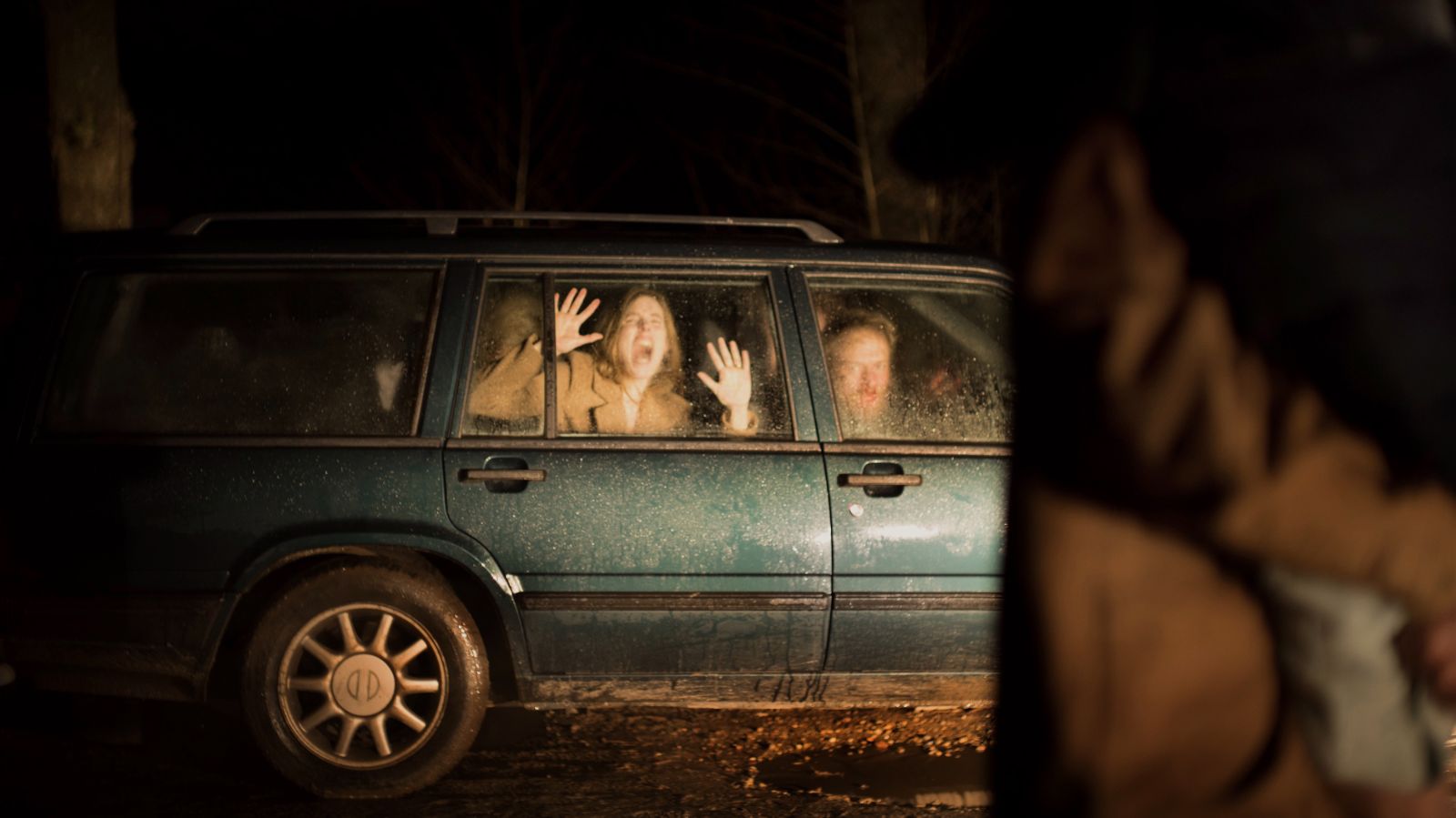
Speak No Evil is terrifying, shocking, and deeply, deeply unsettling. There’s no getting around the upset factor. Audiences who catch this Sundance entry from Denmark should be warned: this one’s gonna hurt. The latest from Christian Tafdrup has the brutal shock value of George Sluizer’s The Vanishing and gut-punching, visceral impact of Haneke’s Funny Games. Speak No Evil does not reach the level of ingenuity and freshness found in those similarly potent antecedents. But what it lacks in originality is compensated in chilling execution. – Chris S. (full review)
Where to Stream: Shudder
Stars at Noon (Claire Denis)

While Claire Denis’ second film of the year, Stars at Noon, was met with a tepid reaction, to say the least, upon its Cannes Film Festival premiere, the response to her Denis Johnson adaptation has rightfully been met with more acclaim with its official release. Yes, the narrative can be occasionally aimless and the shoestring budget is certainly felt, yet there is no one that films bodies like the French director. Given genuine freedom, Margaret Qualley and Joe Alwyn deliver the most uninhibited performances of their young careers, set in a sweaty, purgatorial state capturing a mood at turns sensual and dripping with despair.
TÁR (Todd Field)

At the end of the 1970s, while working as a bat boy for the Portland Mavericks, Todd Field had a bright idea: why not make a stringy-shaped gum (call it Big League Chew) so that kids could mimic the tobacco chewing players on the plate? In 1980 he and his partner sold it to Wrigley’s. He was 16 years old. Field knows a lot about ideas. He probably knows a phrase like “inside baseball,” too. You’ll find evidence of both in TÁR, his first film in 16 years. For much of its first hour Cate Blanchett (eating up scenery as the eponymous conductor of the Berlin Philharmonic) is made to deliver slightly unconvincing takes on the world of classical music. For the next two she is totally remarkable, stretching out those talents in a work that responds in turn. TÁR is an effort of tremendous skill and restraint, beginning with a confidence bordering on arrogance and building to a brilliant crescendo—only after that first act do the best things begin to surface, the compelling energy of ruthless ambition and the unmistakable, delicious hum of dread. – Rory O. (full review)
Where to Stream: VOD
Till (Chinonye Chukwu)
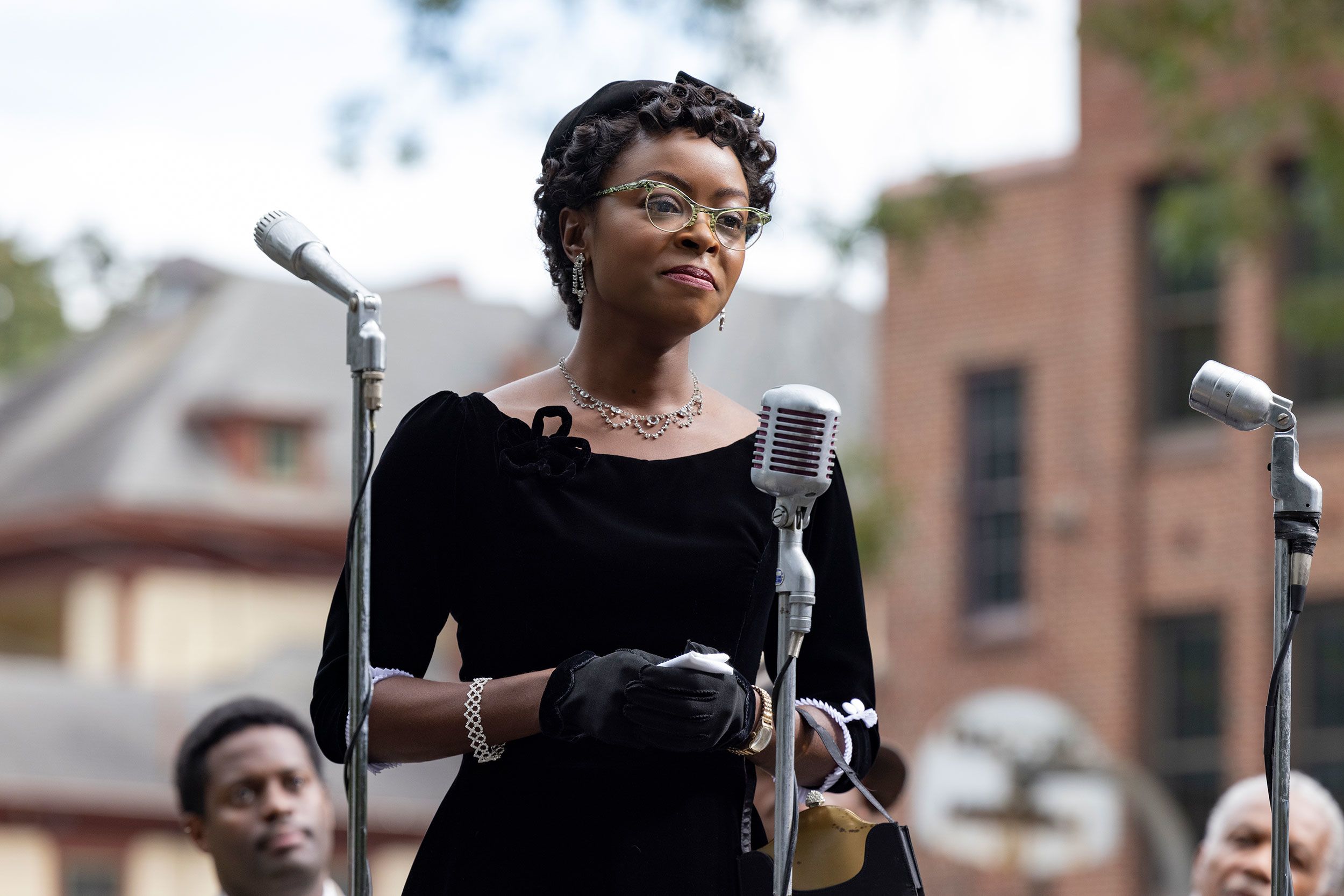
Chinonye Chukwu’s Till finds the Clemency writer-director facing the story of Emmett Till, the 14-year-old boy lynched in 1955. More specifically the story of Emmett’s mother, Mamie Till, who became an ardent activist in the decades following her son’s murder. The film comes less than a year after the implementation of the Emmett Till Antilynching Act, a piece of legislation nearly 70 years in the making, and the first federal anti-lynching bill. – Michael F. (full review)
Where to Stream: VOD
Top Gun: Maverick (Joseph Kosinski)

“He’s the fastest man alive.” Such is the kind of open self-awareness that is tastefully deployed throughout Top Gun: Maverick. Despite being the latest in a line of legacy sequels eager to capitalize on pandering nostalgia, Tom Cruise’s decades-in-waiting return to what made him a superstar only occasionally resorts to such bait. Thankfully, Cruise and director Joseph Kosinski are of a mind to make a film that ultimately exists on its own. Forced to contend with the pall of Reagan-era propaganda over the first Top Gun, this sequel has the gumption to take the original to task, while actively engaging with everything we know about its star. The film’s opening moments mirror that of its predecessor almost exactly. From the opening supers, to the music to the Tony Scott sunscapes, it’s just enough of a signal to let fans know they’re in a relatively safe space. But the fan service flourishes are dispensed up front, leaving plenty of runway to let the whole thing rip. Whether or not one is a fan of the first film, it can’t be overstated how impressive almost every creative decision in Maverick is. The action is practical, the propaganda is muted, and the cocksure hero has decidedly aged. – Conor O. (full review)
Where to Watch: VOD
The Tsugua Diaries (Maureen Fazandeiro and Miguel Gomes)
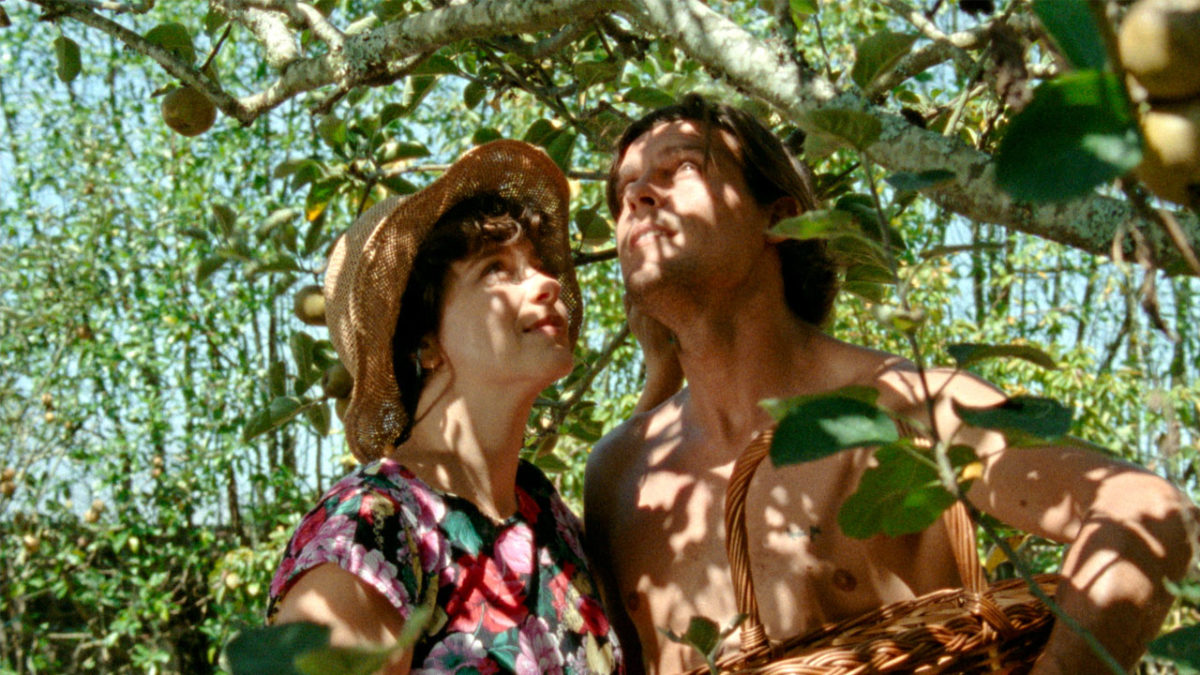
When the idea of “pandemic movies” becoming a sort of subgenre was formed and necessitated by global conditions, there was a groan that could be heard around the world. We know how this goes. Artists will jump on gimmicky opportunities to shallowly explore interior space and entrapment. It became a cliché before any movie was even made. Yet some great artists found a way to make unique, memorable studies of the current moment. Mati Diop’s In My Room used interior space and feelings of inability to escape to explore monotonous life. Rob Savage’s clever Host turned entrapment into a nightmare of computer-aided terror. The latest film from Portugal’s Maureen Fazandeiro and Miguel Gomes is an exercise in how art itself––and, by virtue, the people involved in making it––has been changed by the pandemic. – Soham G. (full review)
Where to Stream: MUBI (free for 30 days)
We’re All Going to the World’s Fair (Jane Schoenbrun)

We’re All Going to the World’s Fair premiered at Sundance in 2021 and hasn’t left my mind since. Jane Schoenbrun’s film is about a teen girl named Casey who takes the World’s Fair Challenge (an online role-playing horror game) and slowly but surely documents the changes that may (or may not) be happening to her. Its deceptively simple plot description hides what a rich text exists within; an ambitious and haunting coming-of-age story that also happens to be one of the most loaded queer films in years. – Juan B.
Where to Stream: HBO Max
Honorable Mentions
Apple TV+
- Causeway
The Criterion Channel
- Ahed’s Knee
- Donbass
- Neptune Frost
- Wood and Water
Disney+
- Fire of Love
- Le pupille
- The Territory
Film Movement Plus
- The Last City and The Lobby
HBO Max
- Barbarian
- Elvis
- The Fallout
- Navalny
Editor’s note: We’re sticking strictly to films on this list, but if you’d like to stretch the definition, Olivier Assayas’s Irma Vep, Nathan Fielder’s The Rehearsal, and Ethan Hawke’s The Last Movie Stars––all on HBO Max––is just about the only television worth paying attention this year.
Hulu
- Beba
- Bitterbrush
- A Chiara
- Deep Water
- Dinner in America
- Good Luck to You, Leo Grande
- Nitram
- On the Count of Three
- Prey
Kino Now
- Hit the Road
- Hold Me Tight
- Private Desert
MUBI (free for 30 days)
- Apples
- The Balcony Movie
- Los conductors
- Fabian: Going to the Dogs
- Free Chol Sol Lee
- Friends and Strangers
- Gagarine
- Întregalde
- Lingui, the Sacred Bonds
- Mr. Bachman and His Class
- Playground
- Public Toilet Africa
- Strawberry Mansion
- Taming the Garden
- Taste
- That Kind of Summer
- Teenage Emotions
- This Much I Know to Be True
- Vortex
- We
Netflix
- Athena
- Blonde
- Costa Brava, Lebanon
- Hustle
- “Sr.”
- Stutz
- Wendell & Wild
Paramount+
- Last Flight Home
Peacock
- Nope
Prime Video
- Argentina, 1985
- Catherine Called Birdy
- Nanny
- The Northman
- Onoda: 10,000 Nights in the Jungle
- Thirteen Lives
Showtime
- Confess, Fletch
- Poly Styrene: I Am a Cliché
Shudder
- Dark Glasses
- Resurrection
- Saloum
- Watcher
VOD
- Ali & Ava
- Dead For a Dollar
- Everything Everywhere All at Once
- Flux Gourmet
- Girl Picture
- God’s Country
- God’s Creatures
- Happening
- Hunt
- A Love Song
- Onoda: 10,000 Nights in the Jungle
- The Pink Cloud
- Poser
- She Said
- The Tale of King Crab
- Three Minutes – Lengthening
- Three Thousand Years of Longing
- To Leslie
- Triangle of Sadness
- The Woman King
Subscribe to our daily newsletter and follow our weekly streaming column.
